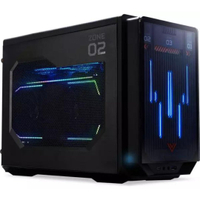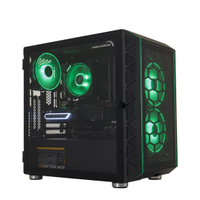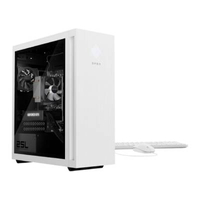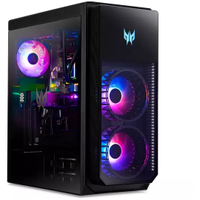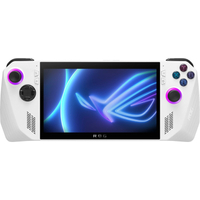The best gaming PC 2025: UK builds at the cheapest prices
Looking for the best gaming PC in your budget? Here are our favourites
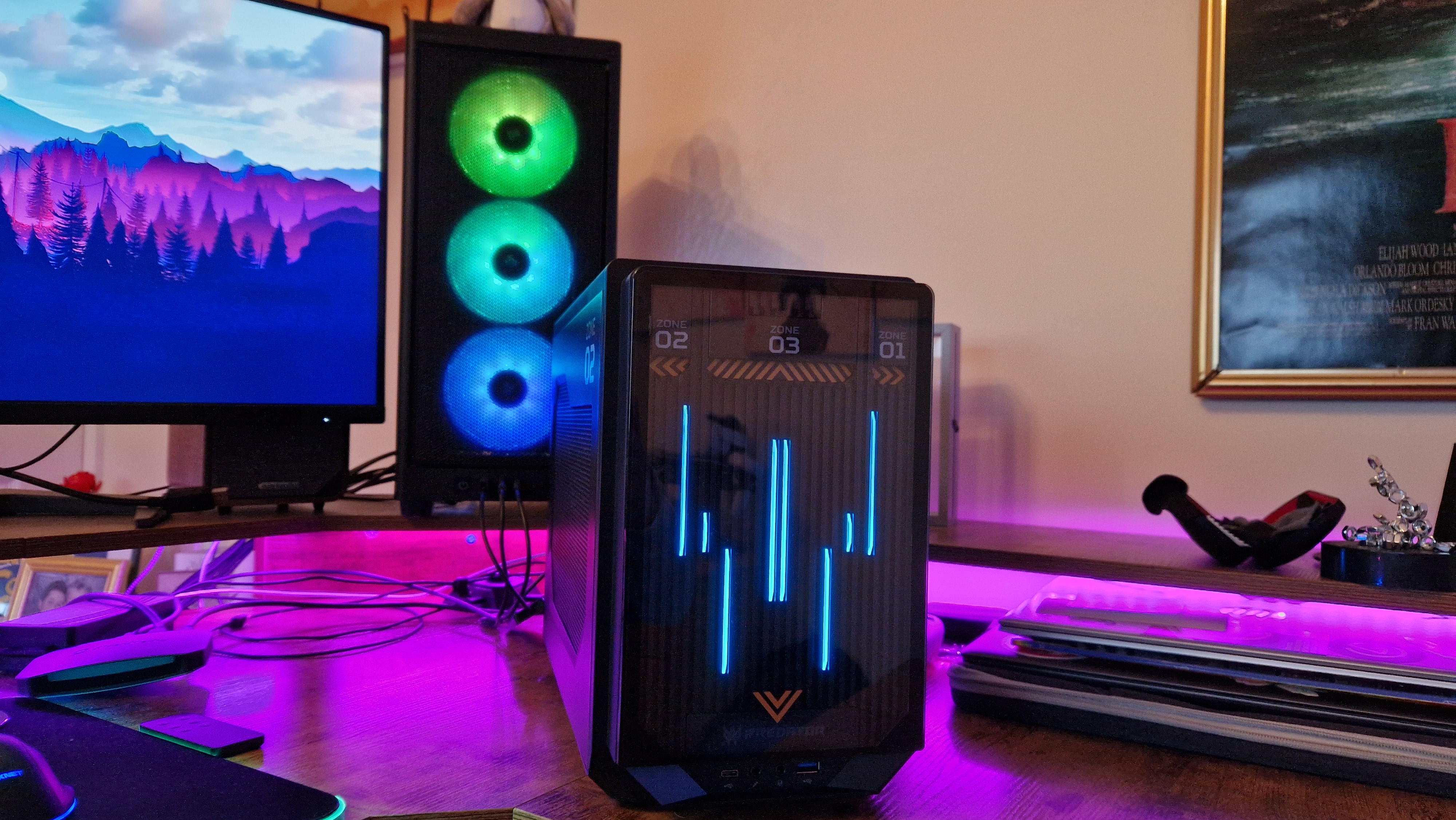
Shopping for the best gaming PCs can be really intimidating, especially if you're not used to all the confusing component names and high prices. Things get even more complicated when you start to realize that the options in the US are a totally separate bag from what we get here in the UK, and two computers of the same name can vary wildly from one retailer to another. Luckily, I've been testing as many prebuilt systems and gaming PC components as I can, and I've pulled together a list of the ones that are worth your investment.
My goal is to narrow down your search and make things as simple as possible. Prebuilt gaming PCs are the plug-and-play alternative to building from scratch, and although they used to be looked down on, I can feel the winds beginning to change. Naturally, you're always going to get some purists who will tell you building is the only way, but their fears of prebuilt systems have mostly eroded in the last five years or so. No longer do they all use proprietary parts or prevent you from swapping components out. For the most part, they come without bloatware or loads of preinstalled nonsense you don't actually need. After all, Windows 11 has that regardless of whether you build or buy.
If I can offer you one bit of advice before we get into the entries on the list below, it's to think about futureproofing. A new gaming PC can be a daunting investment, so I wouldn't blame you for aiming at the budget end of the scale. That's totally fine, but to make sure your investment is worthwhile, be certain that the motherboard you choose has a CPU socket that can see some upgrades if you want them down the line. Try to get something with room to grow you can upgrade the parts you want to later on, because chances are, you might want to the more you play.
The Quick List
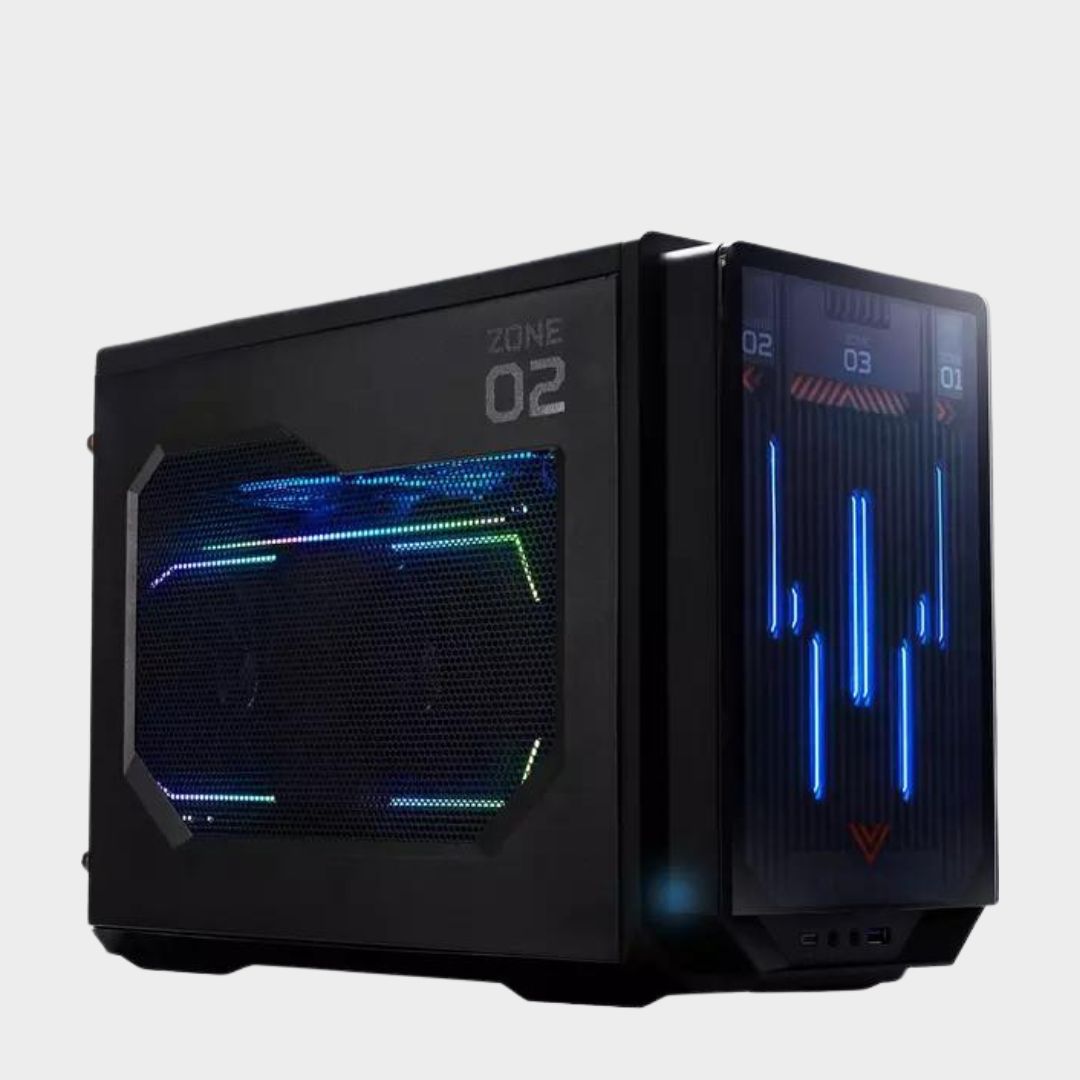
The new Predator Orion X takes the power and pedigree of previous Orion builds and channels it into a smaller chassis. This is one of the best there is.
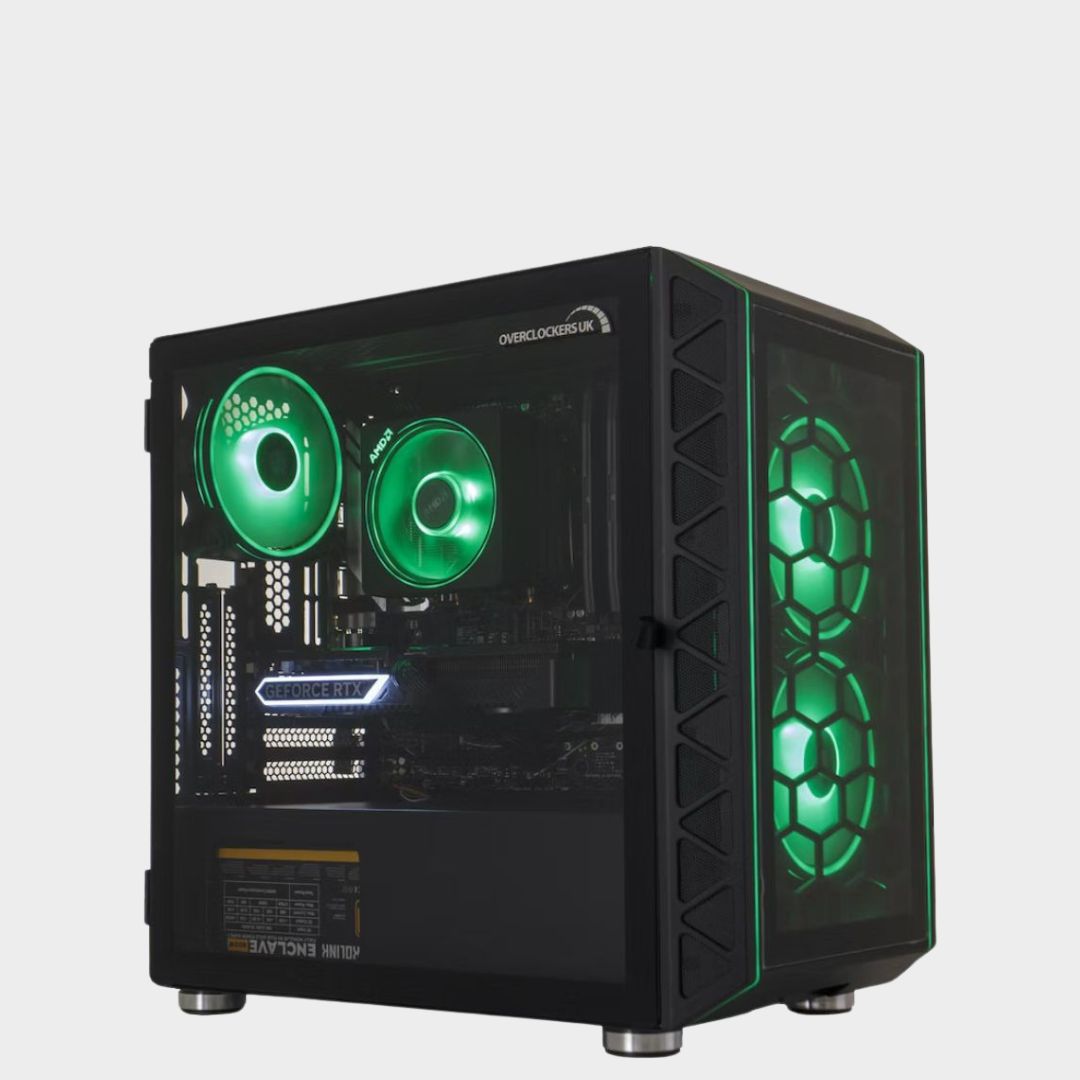
The Refract Gaming Jade is frequently discounted below its MSRP, and with a 4060 Ti and Ryzen 7 7700 inside, there's a lot of value to be had from it.
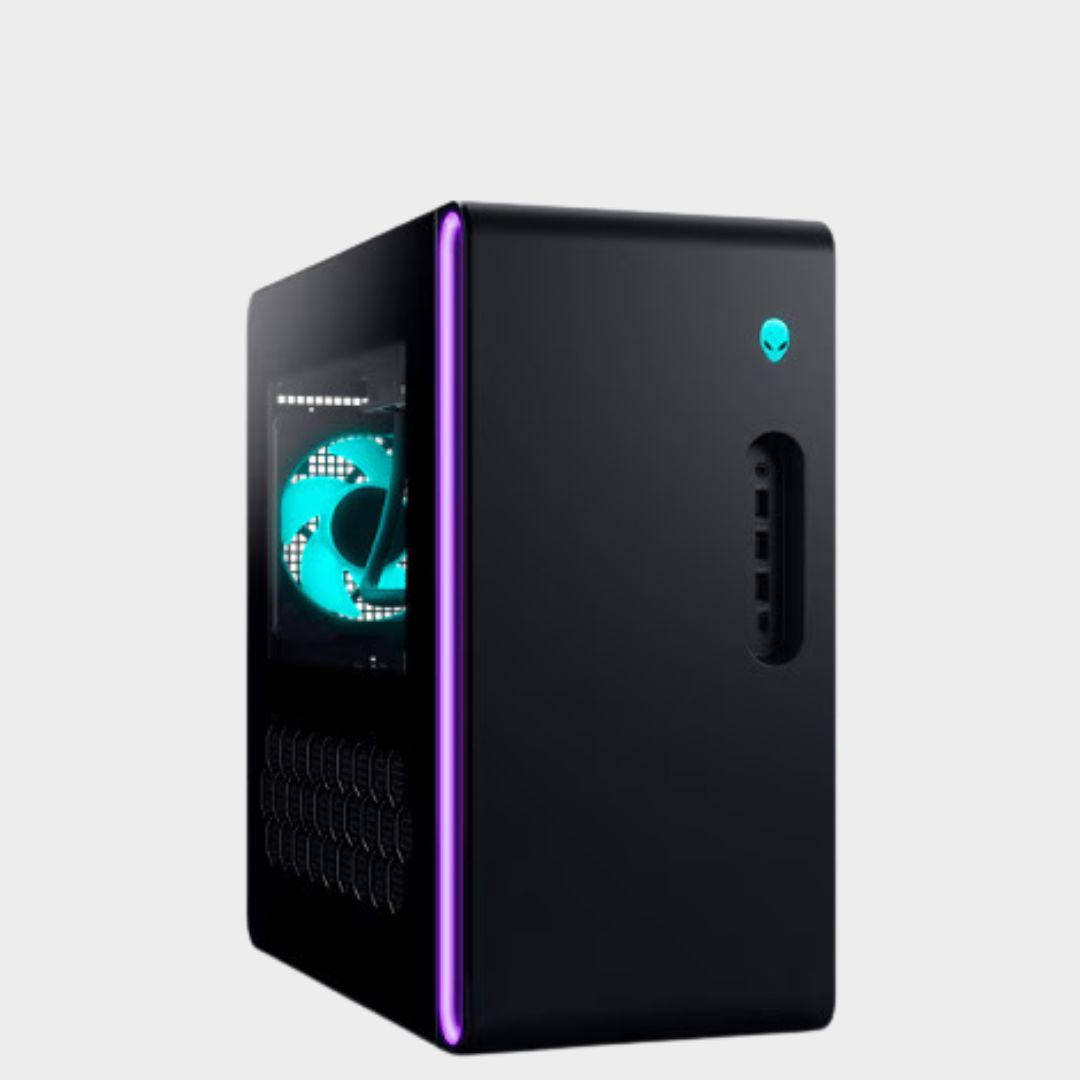
The Alienware Aurora R16 points to a bright new future for the brand. It looks like a conventional gaming PC, and it still plays like something out of this world.
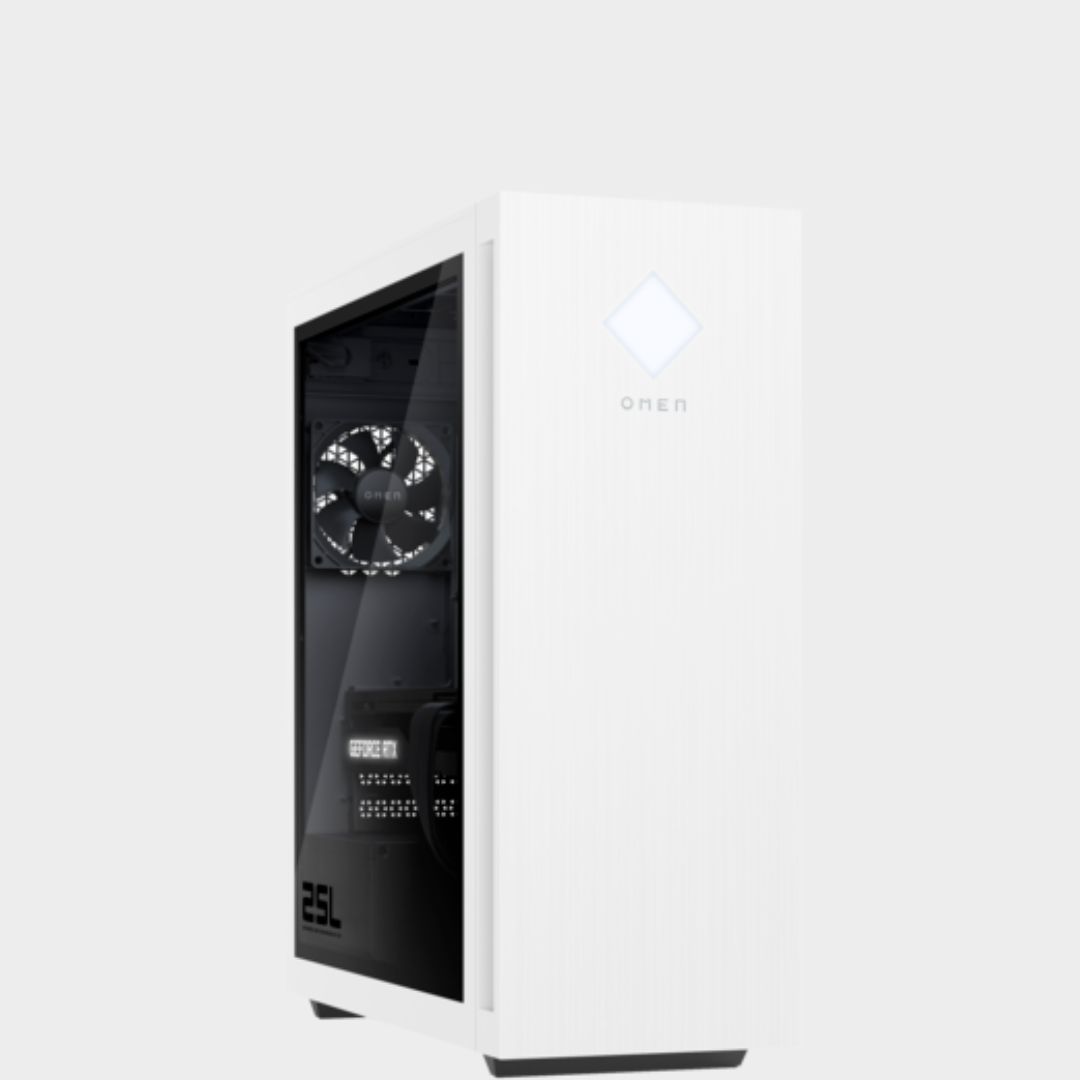
The HP Omen 25L is a great way to get into PC gaming. It's a slightly smaller ATX build that houses affordable but strong components. It doesn't look bad either!
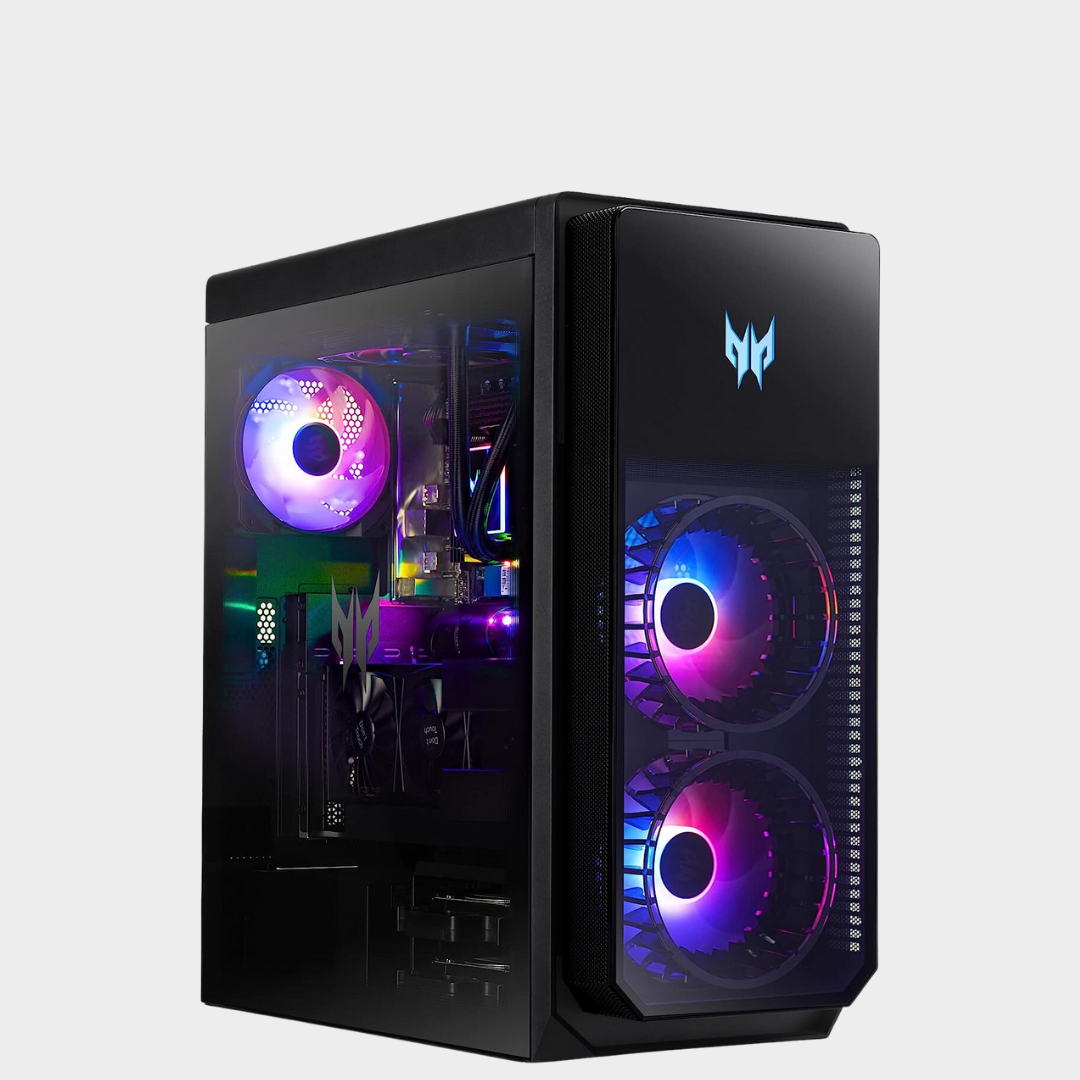
The refreshed 13th Gen Acer Predator Orion 7000 isn't perfect, but if you can afford something at the premium end of the scale, the 7000 can pack some serious power.
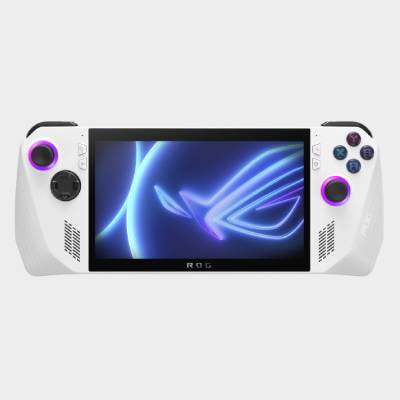
The Asus answer to the Steam Deck is affordable, powerful, and worth buying if you want to be able to take your PC gaming sessions on the go with you.
Read more below

After a growing obsession with too many games designed to be played on PC, I started getting nerdy about computers in 2019. In 2020 I bought my first gaming PC, and I found out first-hand how tricky it can be to balance price and power. Since joining GamesRadar+ in 2022, I've been testing all sorts of gaming PCs and components, even building a few systems of my own. I love breaking down the specs of a prebuilt machine seeing how it performs, and working out which brand is worth your hard-earned cash.
Recent updates
Monday, March 31: Not much has changed in this update, and that's because I've been hard at work securing new gaming PCs to test for the list. Right now, I'm testing one, I have a freelancer working on another, and another brand building up a third machine for us to test. Be prepared for some new options in the next update after we've tested and reviewed those machines. With new CPUs, motherboards, and GPUs out in the wild now, it's time to determine which specs are worth your investment.
The best gaming PC overall
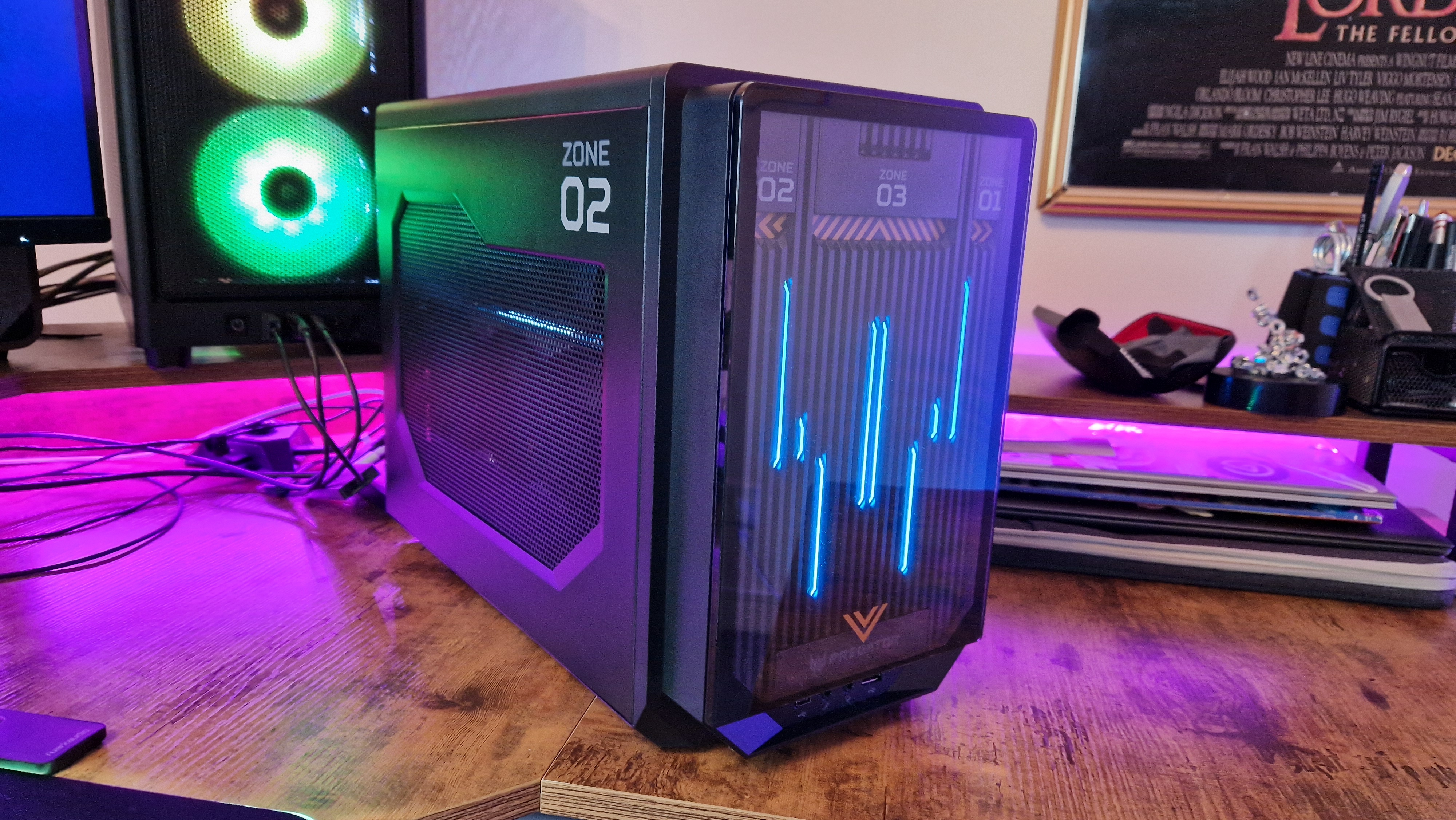

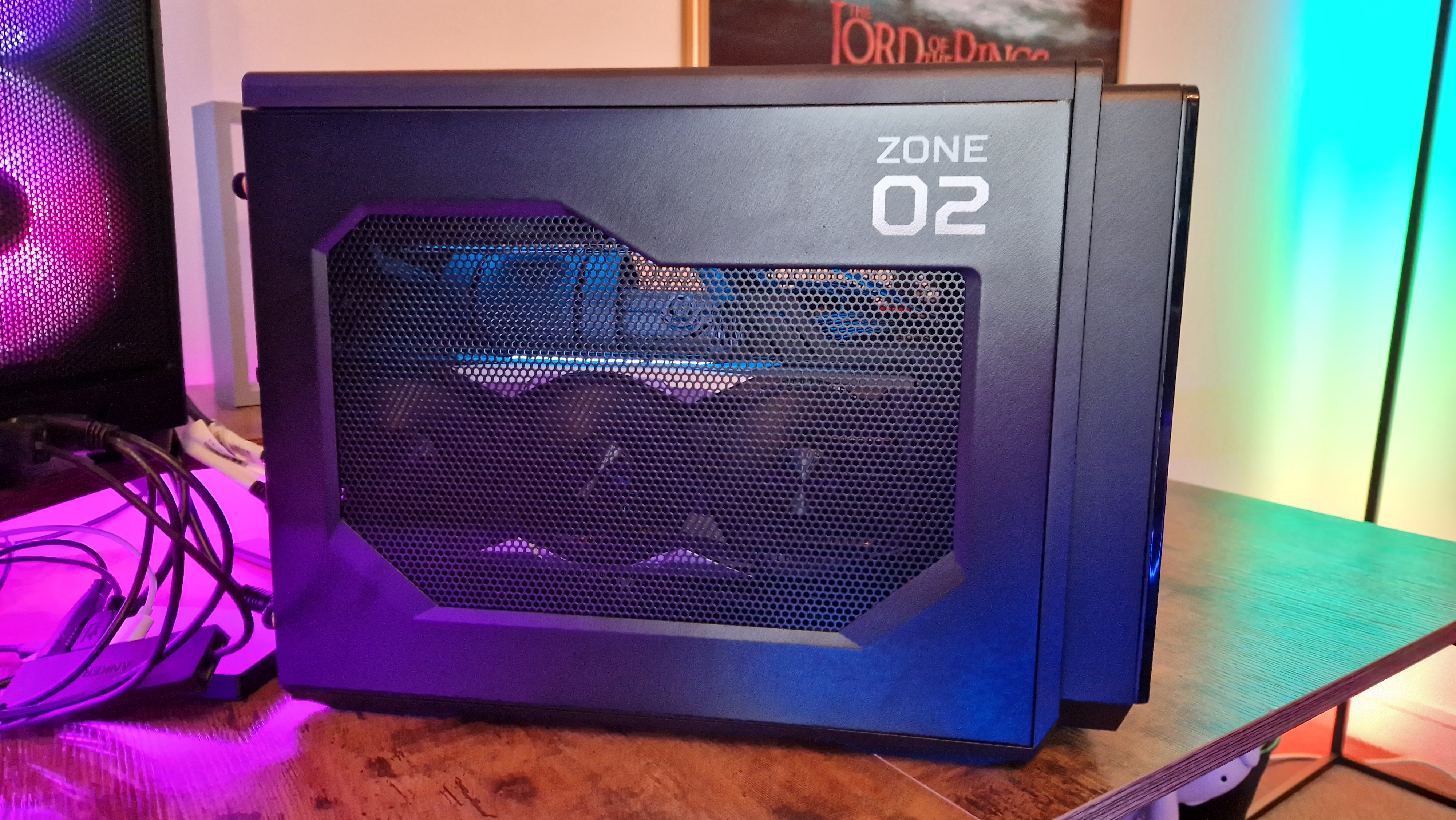
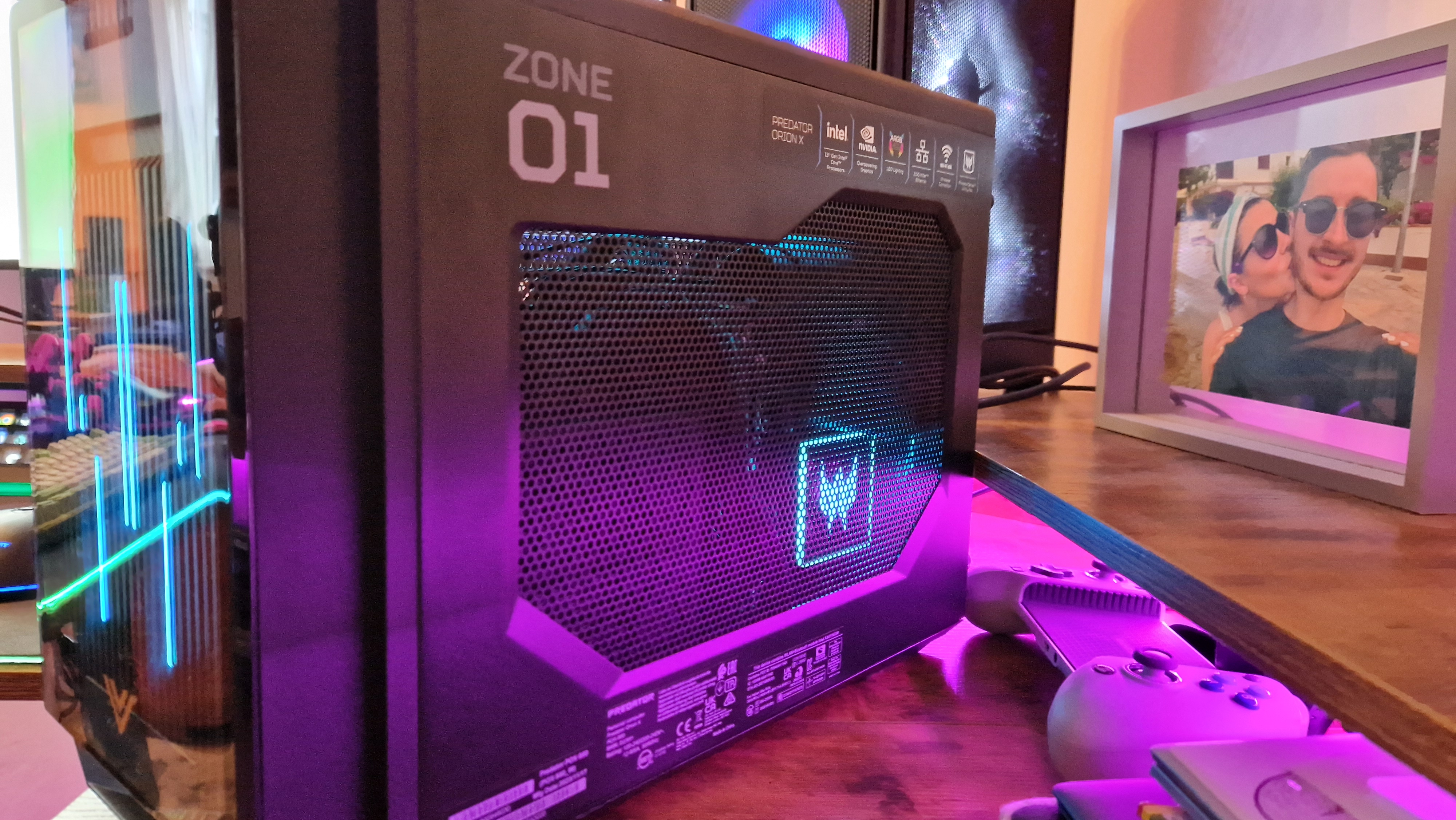
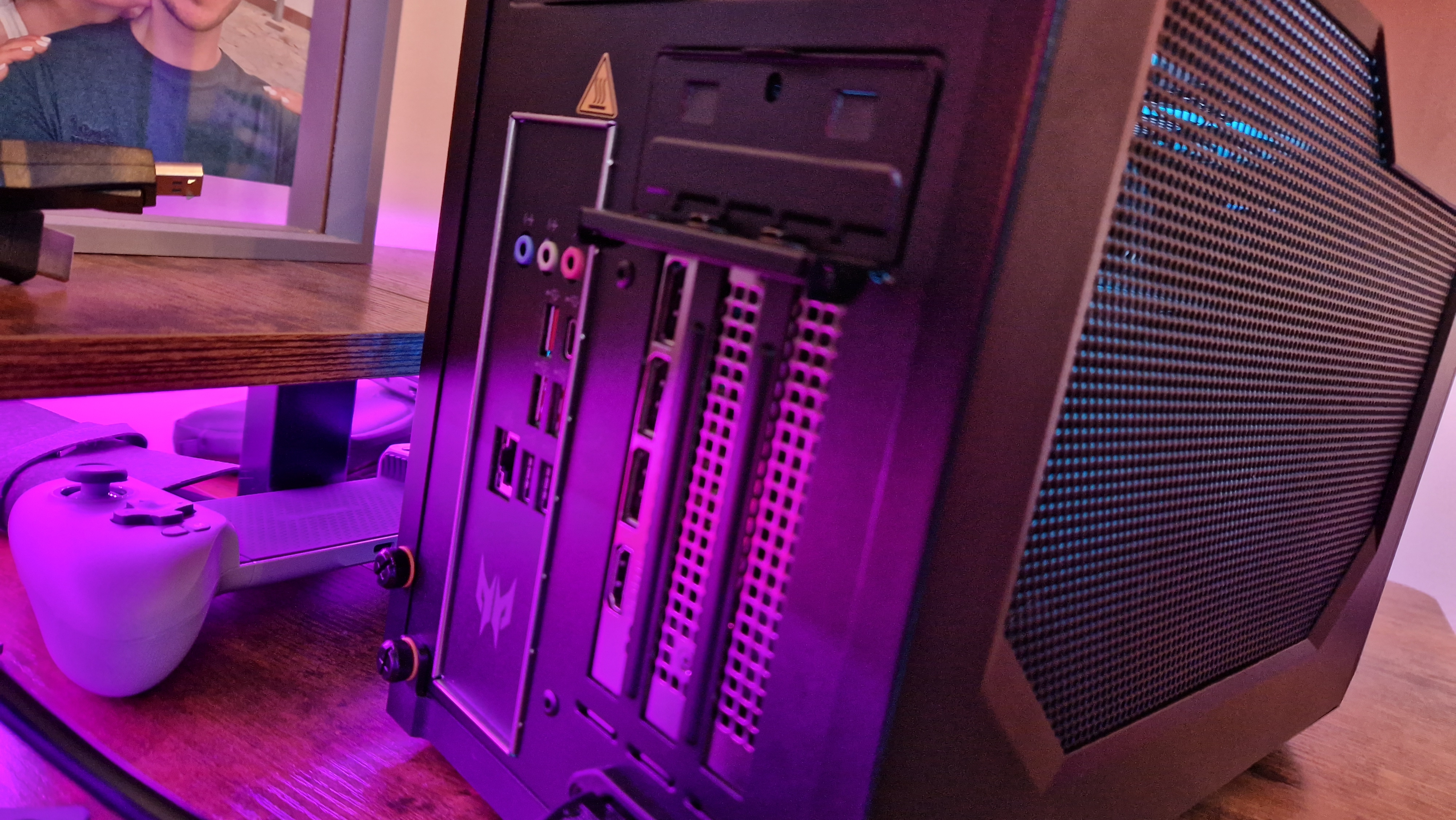
Specifications
Reasons to buy
Reasons to avoid
- Our favourite configuration:
Acer Predator Orion X | Acer Predator Rift Gaming Chair | £3,799.99 at Currys
In this bundle offer from Currys, you can get a new gaming chair along with your new gaming PC. We've reviewed both parts of this bundle and we're amazed at the quality on offer. You even save a generous £200 on the combined price.
The Acer Predator Orion X is one of the most innovative, powerful, and compact PCs we've had the pleasure of testing. This is a small form factor build, but one that acts nothing like an ITX build at all. If you can afford this little monster, it's the best prebuilt gaming PC in the UK right now.
✅ You want a small PC. This is a small form factor build, which means it'll actually fit on top of your desk if you want it to.
✅ You want something quiet. The liquid cooling in this rig is especially good, meaning that even when the PC is working hard, you're not going to hear it struggle like you would a bulking great mass of a computer.
✅ You're aiming for 4K. An RTX 4080 is a seriously powerful GPU. Combined with an Intel Core i9, you're going to have gaming power for days if you want to play in 4K.
❌ You need a fast SSD. The SSD here is particularly weak, so keep that in mind if you're going to splash out.
❌ You want to upgrade a familiar machine. The layout of this PC's innards is a bit confusing and is like no regular ATX motherboard we've worked with. If you plan to upgrade, you might need to study it closely first.
❌ You're on a budget. Annoyingly, this PC only comes with some of the beefiest, and most expensive parts on the market, so you're going to struggle to afford it if you don't have a serious budget to play with.
Design & Features: Contrary to larger Orion 7000 gaming PCs, the Orion X is remarkably quiet thanks to an AIO cooler that uses a mix of water and air to keep its innards cool. It works surprisingly well, and it would need to since the configuration we tested comprises an unlocked 13th Gen i9 processor and an RTX 4080 GPU.
Despite these being some of the beefiest components you can buy for PCs at the moment, they're housed in a chassis which is as quirky and inventive as ITX cases get. There are three "zones" in the chassis to direct you to different components of the rig, and while this is excellent for cramming big components inside it, it may prove quite difficult to operate on if you want to upgrade it later on.
Performance: Regardless, in general use, gaming, and content creation, this PC performed brilliantly and outshone the larger Orion 7000 in terms of quality of life and value. This is cheaper and arguably performs better thanks to that AOI cooler. There's next to no noise pollution and it won't take up all the space underneath your desk.
Moreover, there's very little you can throw an RTX 4080 at and not win when gaming. the visuals you'll be able to muster up at high frame rates are breathtaking, and combined with an i9 there's so much legroom to play and create in 4K. Rather bizarrely, the SSD you get for your money is the worst bit - a common theme with some prebuilds that manufacturers probably use to keep costs down. CrystalDiskMark showed us a sequential read speed of only 3,622MB/s, which isn't ideal for a PC of this price.
Still, gaming results were spectacular, with even 4K and ray traced Hitman 3 managing to get a benchmarking score of 92fps. That test usually humbles every other rig we test, but the Orion X chewed it up and spat it back out.
For us, it doesn't get much better than this in the prebuilt gaming PC world.
The best value gaming PC
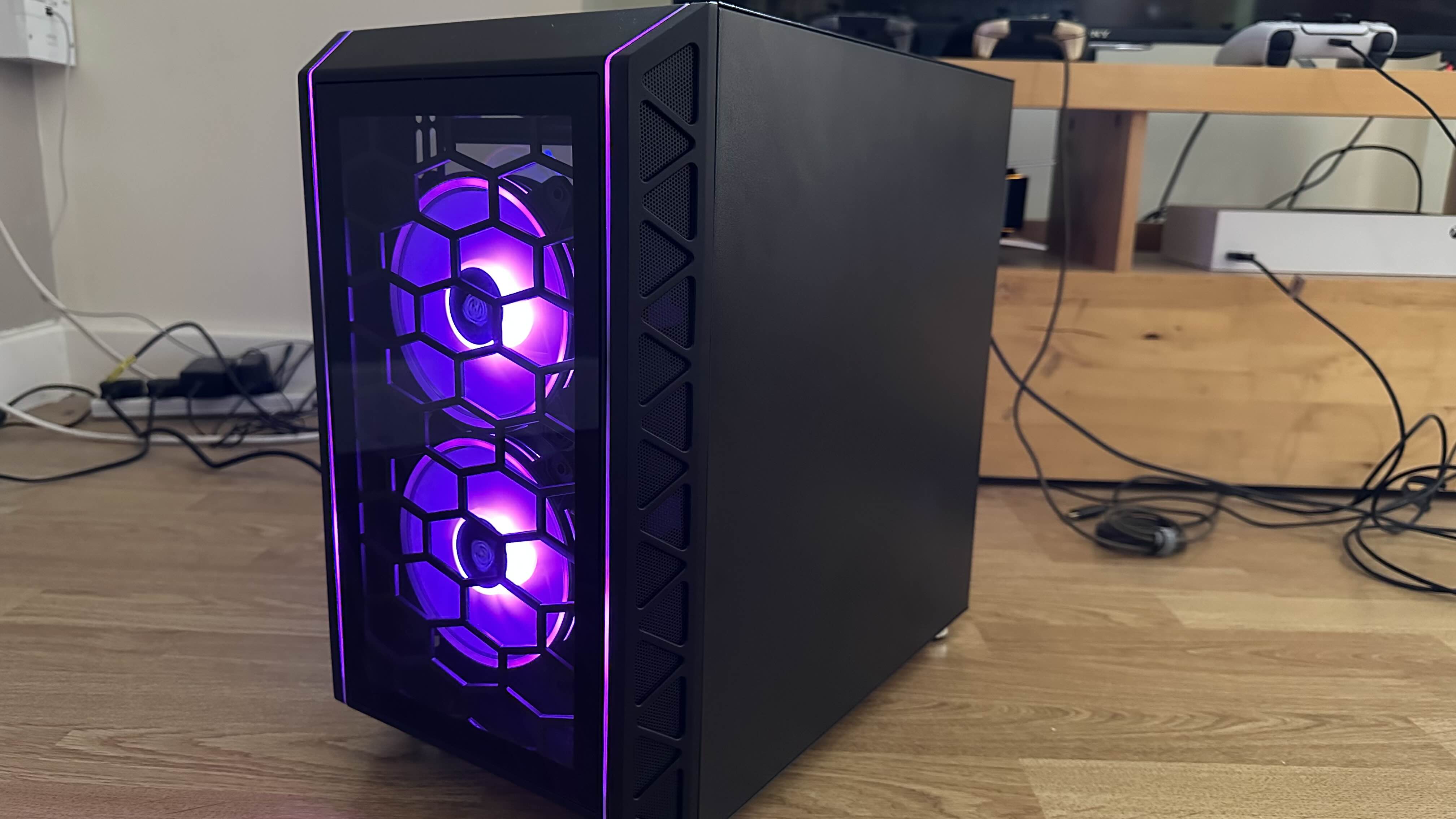
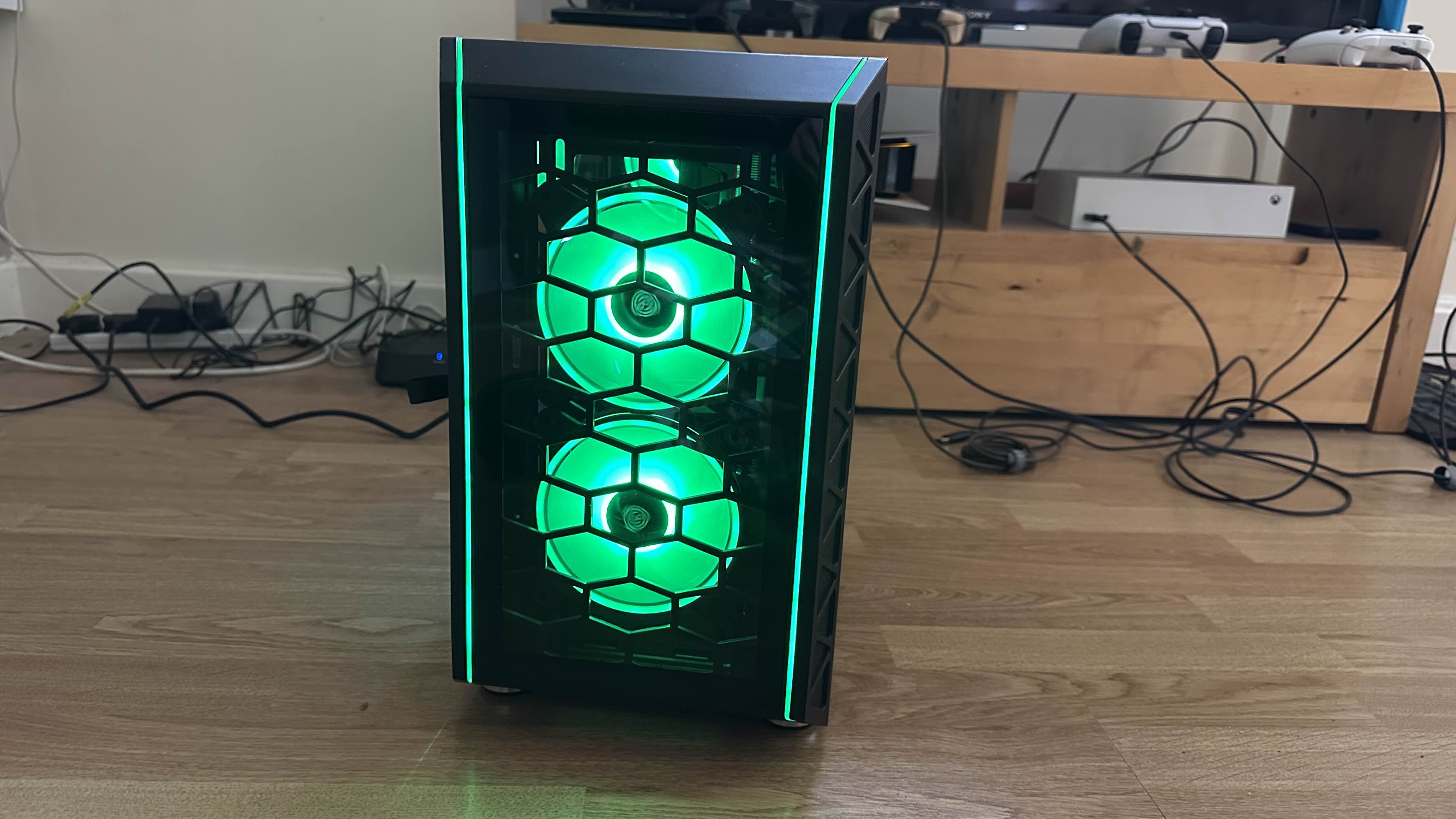
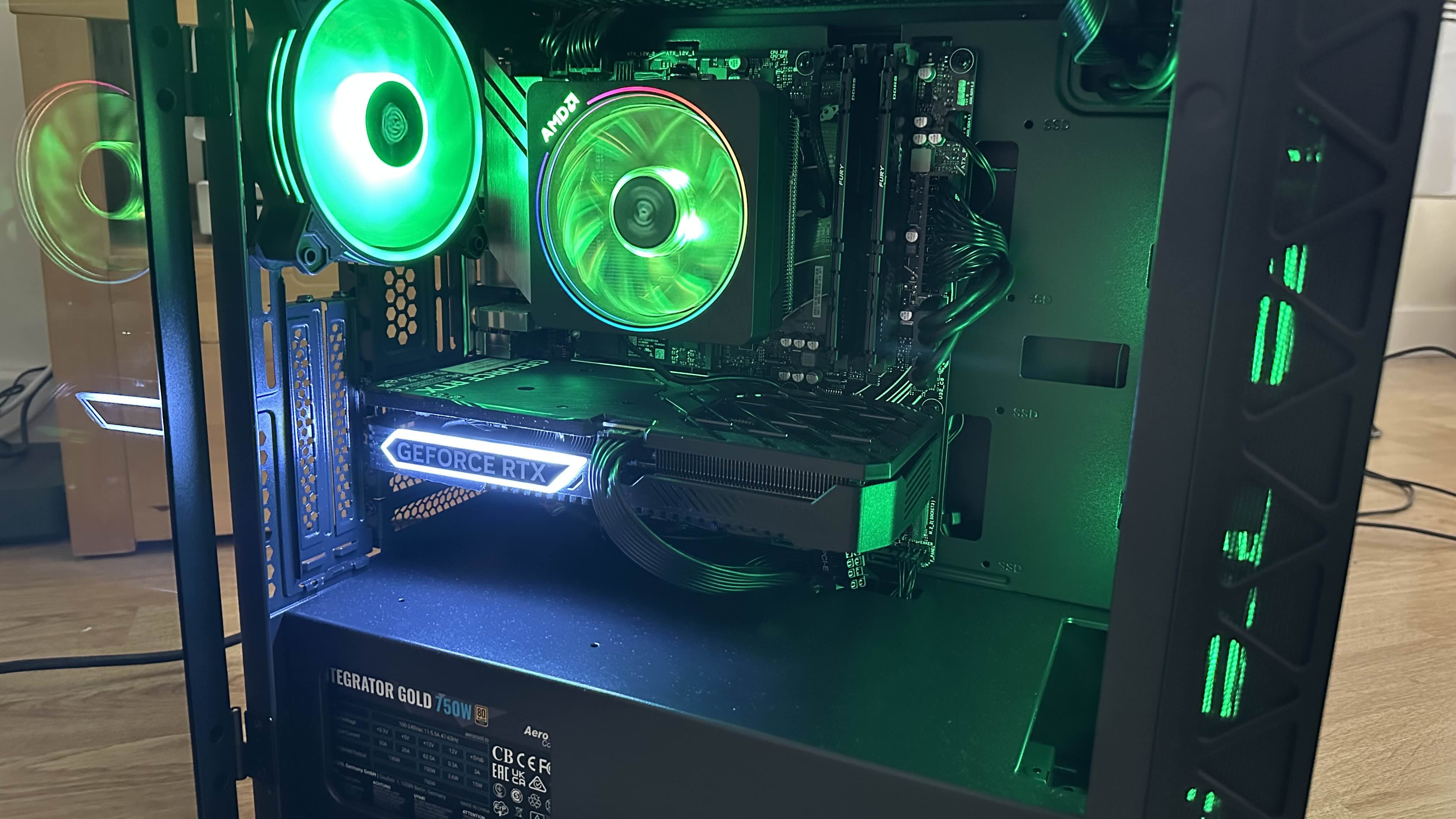
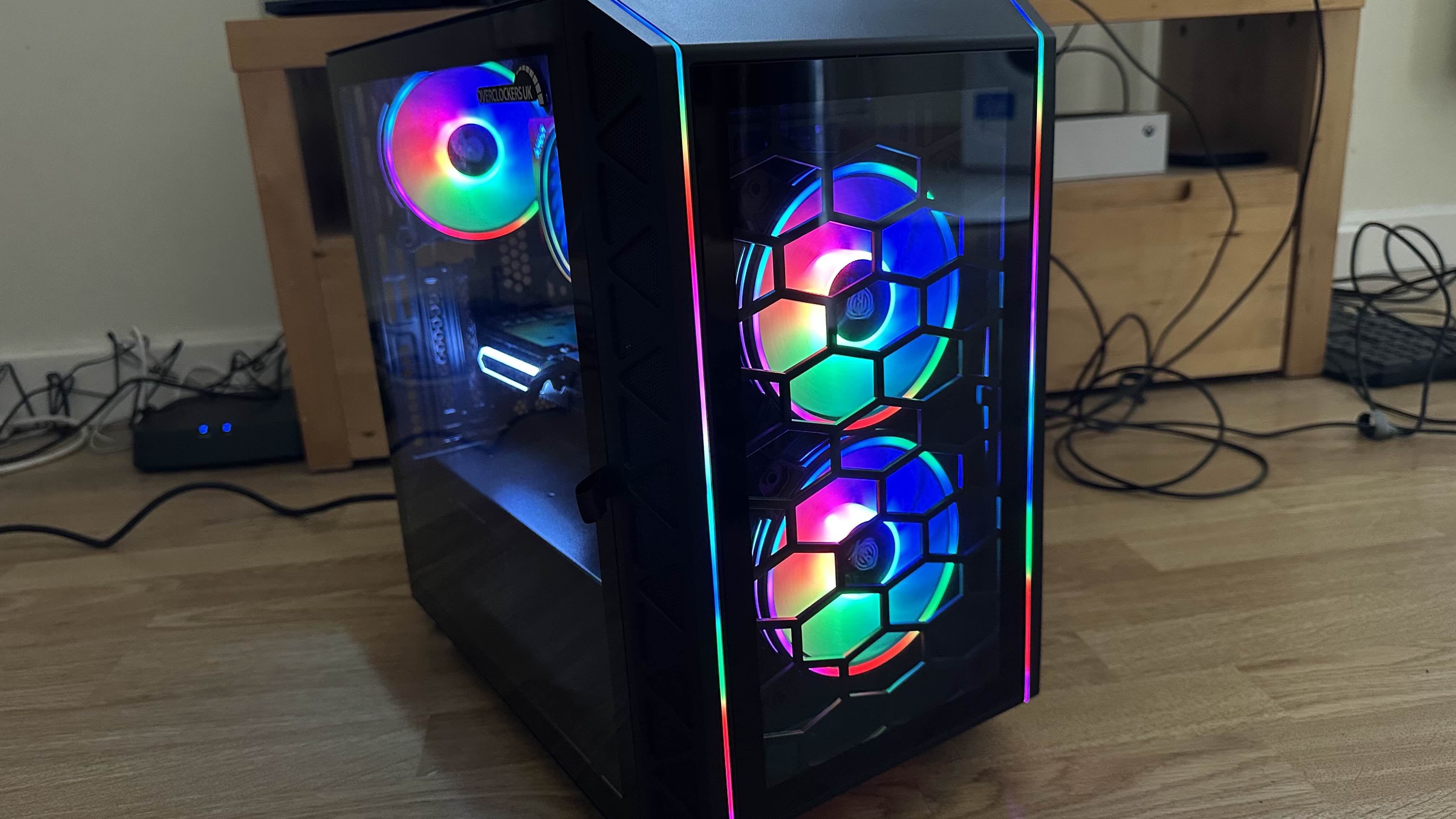
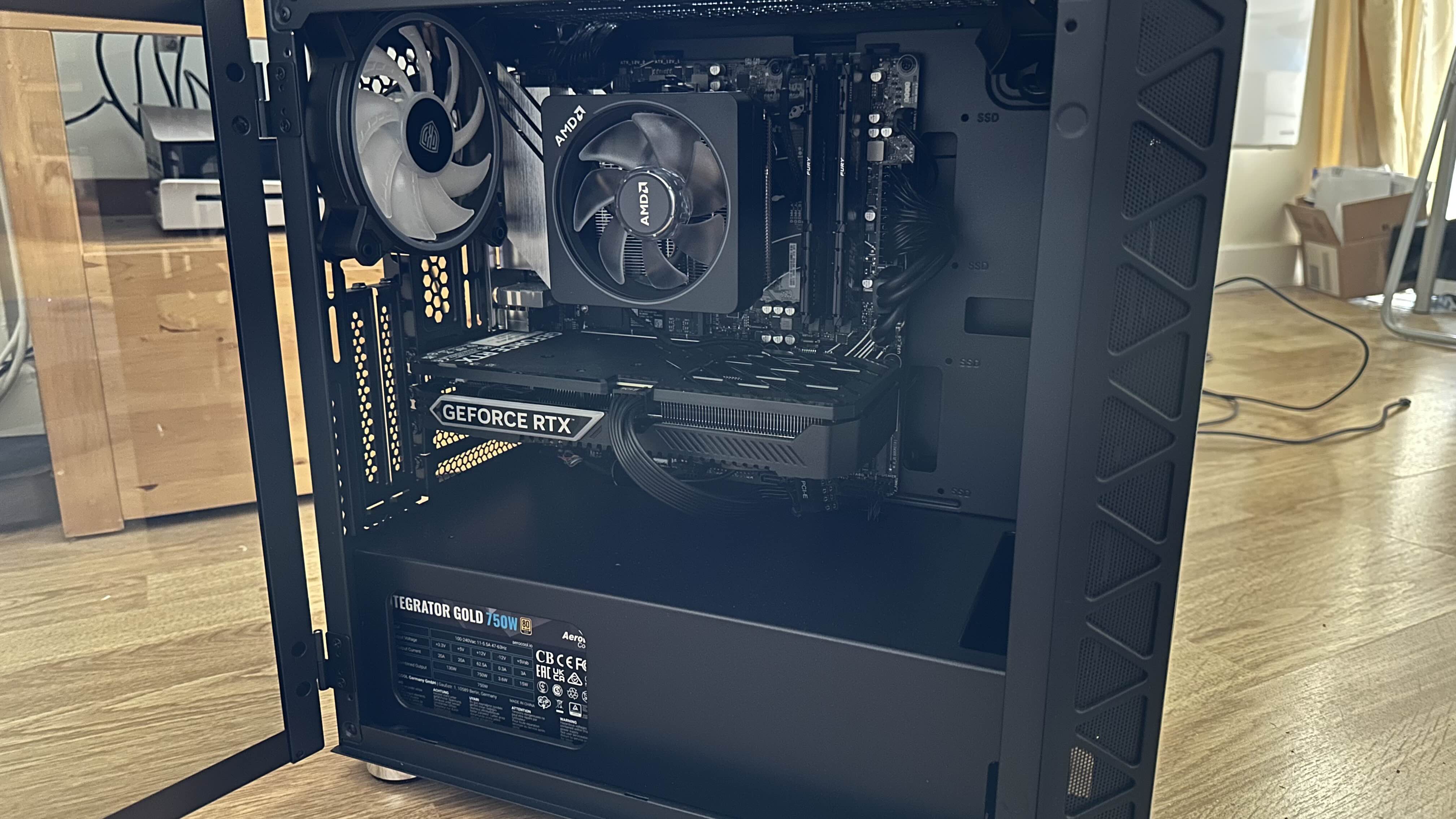
Specifications
Reasons to buy
Reasons to avoid
Our favorite configuration:
Refract Gaming Jade | Ryzen 7 7700 | RTX 4060 Ti
The Refract Jade only comes in this one configuration, which makes things pretty simple! You get some great parts inside this rig for the money you pay, although the weakest part you might want to upgrade in the future is the SSD.
The Refract Gaming Jade PC is a prebuilt machine by the team at OverclockersUK, and it's taken the mantle of "best value" on this list because it can frequently be found discounted, or with fun game bundles being offered alongside it. With fairly beefy mid-range components in there, you get some great value for money, regardless of the resolution you aim to play at.
✅ You want a smaller chassis. The case used here isn't quite as bulky as a lot of the rival gaming PCs of this price range, so if you don't have a lot of space, this is for you.
✅ You want to control RGB lighting easily. We haven't heard of any other gaming PCs that come with handy remotes you can control the RGB lighting with. That's a neat trick!
✅ 1440p if the resolution you're aiming for. With a 4060 Ti inside, there's a lot of room to gallop at all three mainstream resolutions. Quad HD is the natural middle ground for this graphics card though.
❌ You want a quiet PC. This is air-cooled, which means when it's working harder, it's going to make a lot more noise than something with an AIO inside. If you're sensitive to noise pollution, look elsewhere.
❌ A fast SSD is what you need. The weakest part of this rig is its SSD, which didn't score highly when we benchmarked it.
❌ You want a better GPU for the money. The 4060 Ti is a great, and versatile GPU, but with a Ryzen 7 and 32GB of RAM, you could argue for the money a 4070 would fit better.
Design & Features: The Refract Gaming Jade comes in one configuration, and sports a Ryzen 7 7700 CPU, an RTX 4060 Ti, 32GB of DDR5, and a 1TB SSD. Its Micro ATX chassis is a Kolink Citadel Glass case that won't take up loads of room under a desk or next to a TV stand. It's a real-estate efficient machine that's versatile as a result of its smaller footprint.
One downside is that it's cooled only by air. On the front, lie two intake fans which bring cool air across the motherboard. The CPU cooler is a fairly simple fan that steals some of that air before a singular exhaust fan blows it out the back. We wish there was maybe an AIO liquid cooler here to compensate the lack of a third frontal fan, but if you aren't opposed to a bit of noise pollution, this won't really be a problem.
The 650W PSU and space inside the case will allow you to customise and upgrade parts as you go. If getting in about your motherboard is a frequent occurrence for you, you'll be glad to know the glass panel folds open with a simple pull, and no tools are required.
Performance: With a 4060 Ti inside, there's capable gaming performance to be had from the Jade at any of the three resolutions. At 1080p, you've got something that will frequently spit out triple digit framerates, and at 1440p, you're going to find a lot of sweet spots between graphical fidelity and smooth gameplay. There is some room at the top for 4K gaming, if that's your thing. Just remember that with only 8GB of VRAM you're going to need to use DLSS more, or forgo ray tracing to really get playable frame rates. Still, you can see from the table below that in Shadow of the Tomb Raider with DLSS and max 4k settings, the Jade was still able to get over the 60fps mark.
Unfortunately, the SSD inside the Jade does let the side down, as our CrystalDiskMark benchmarking tests only produced a 5,227MB/s sequential read speed, and 4,823MB/s write speed. That's a disappointment for any gaming PC over a grand, and it's definitely the part of this machine we'd recommend upgrading first.
The best Alienware gaming PC
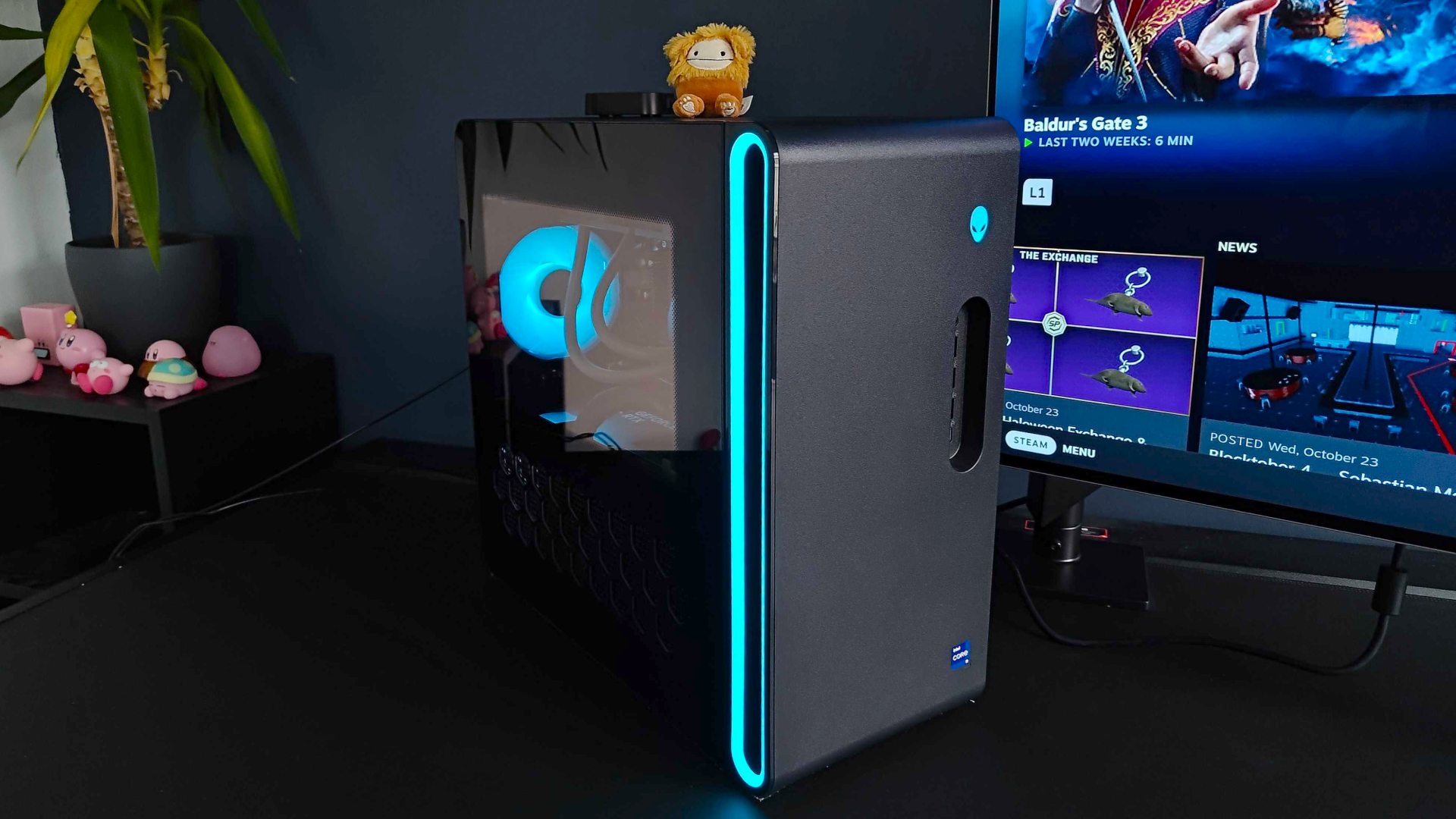
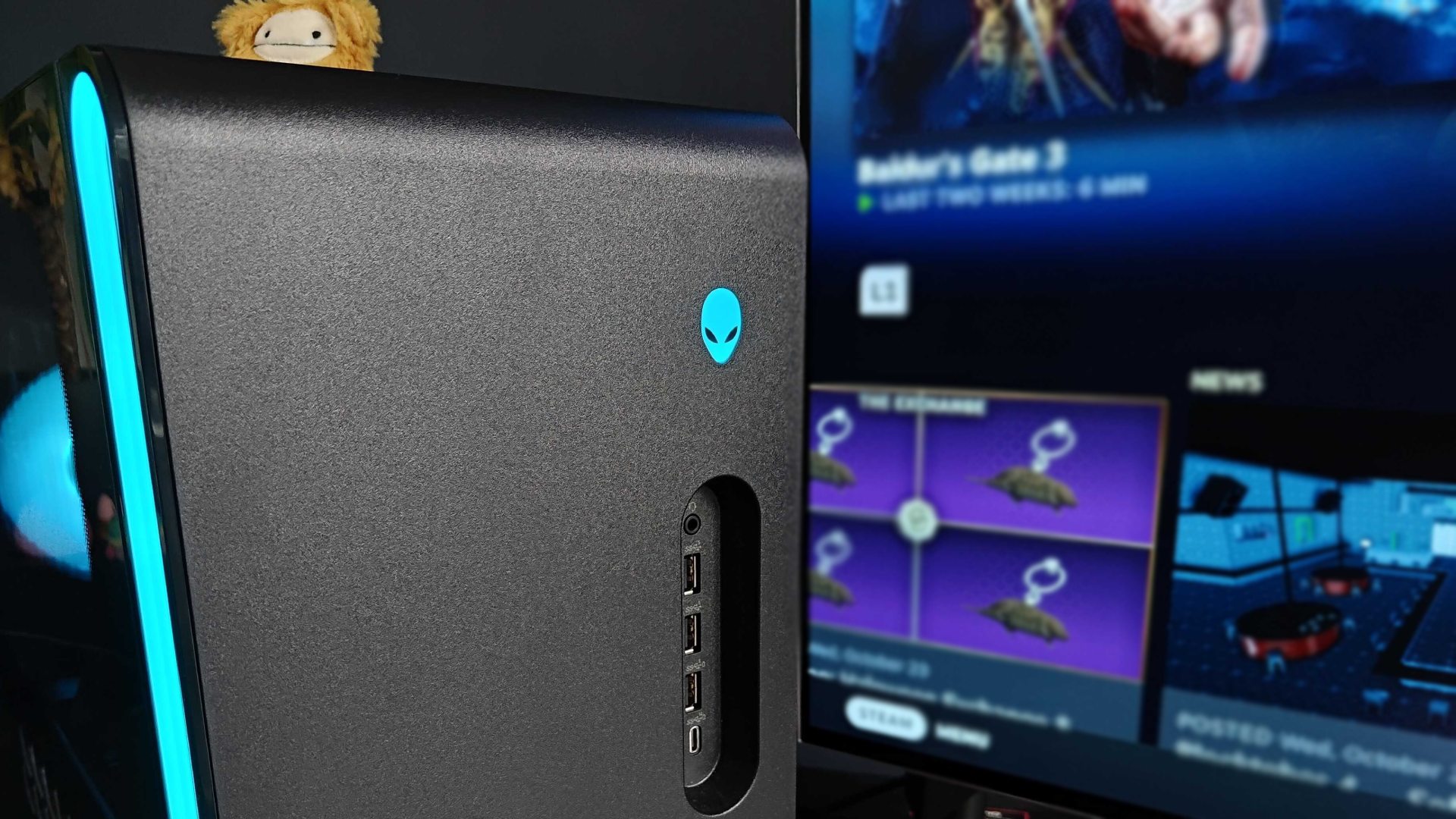
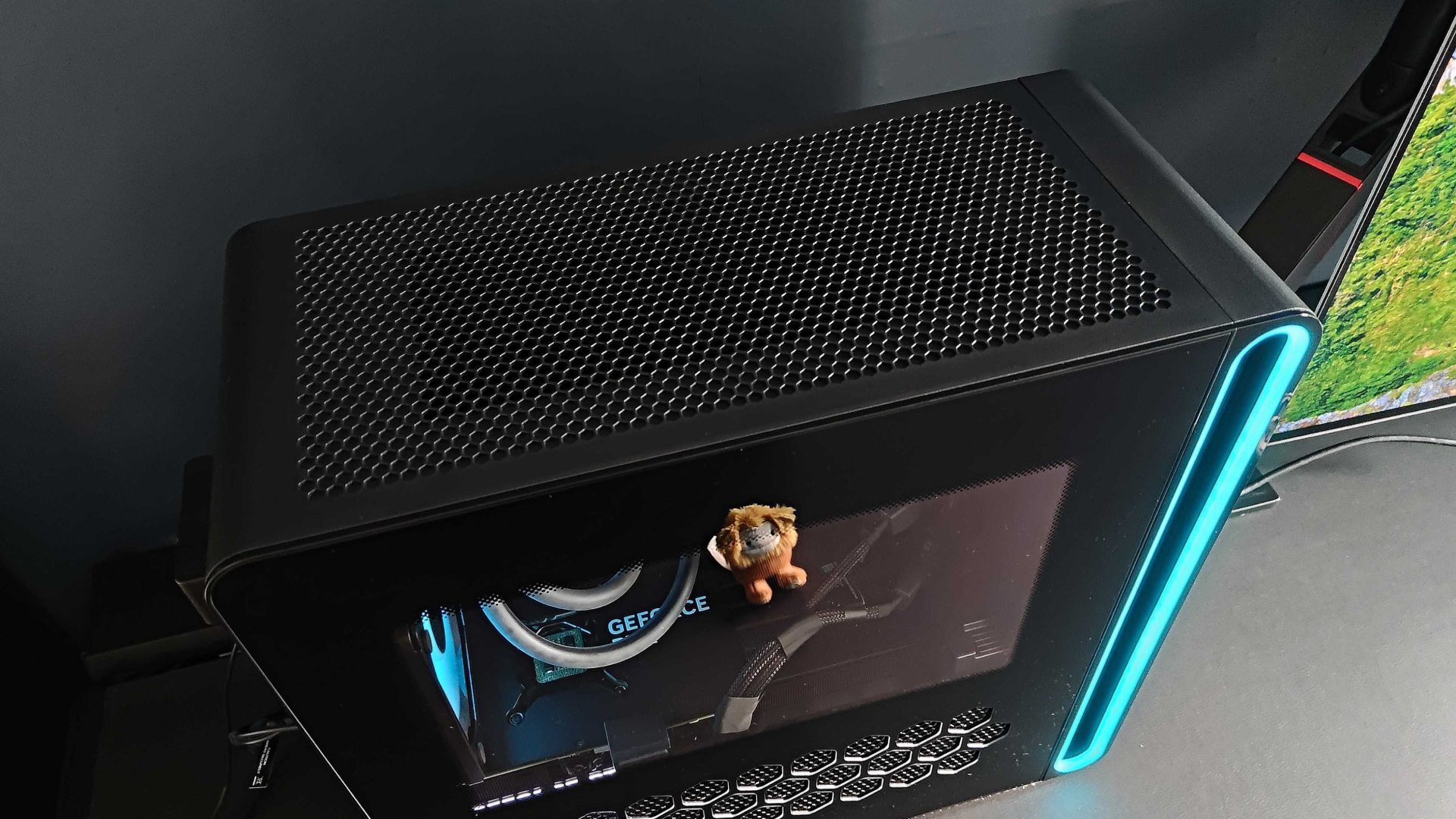
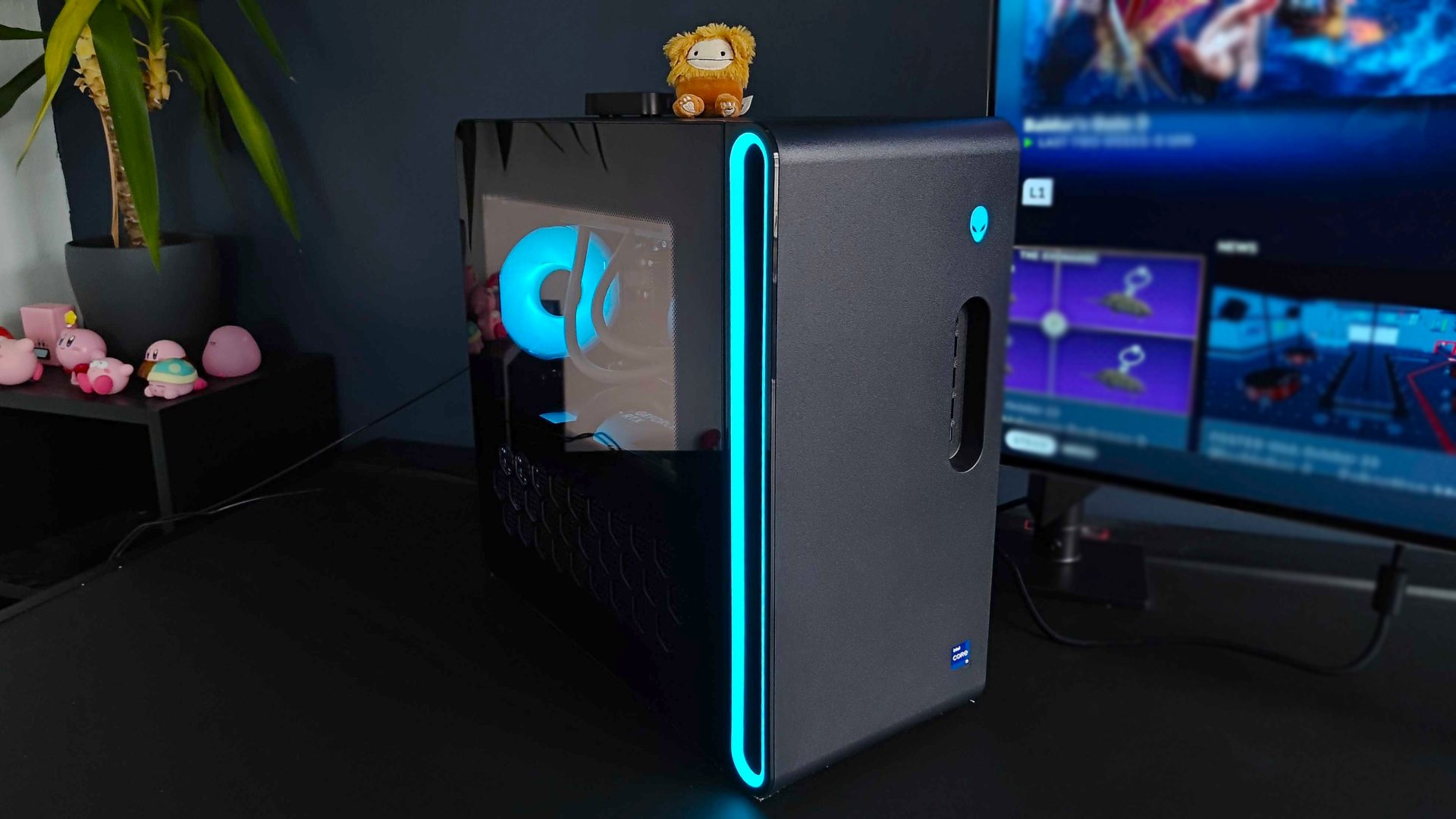
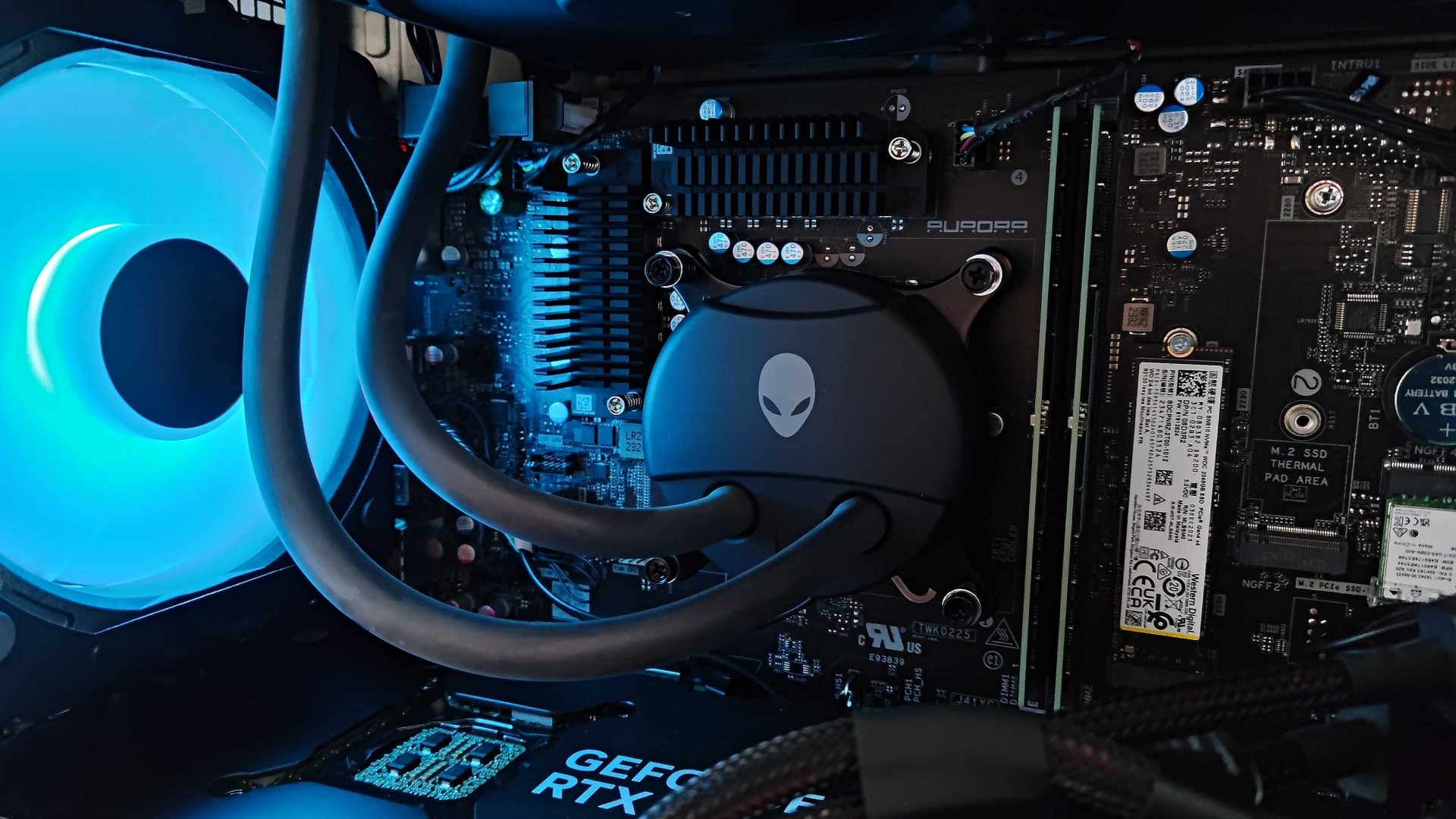
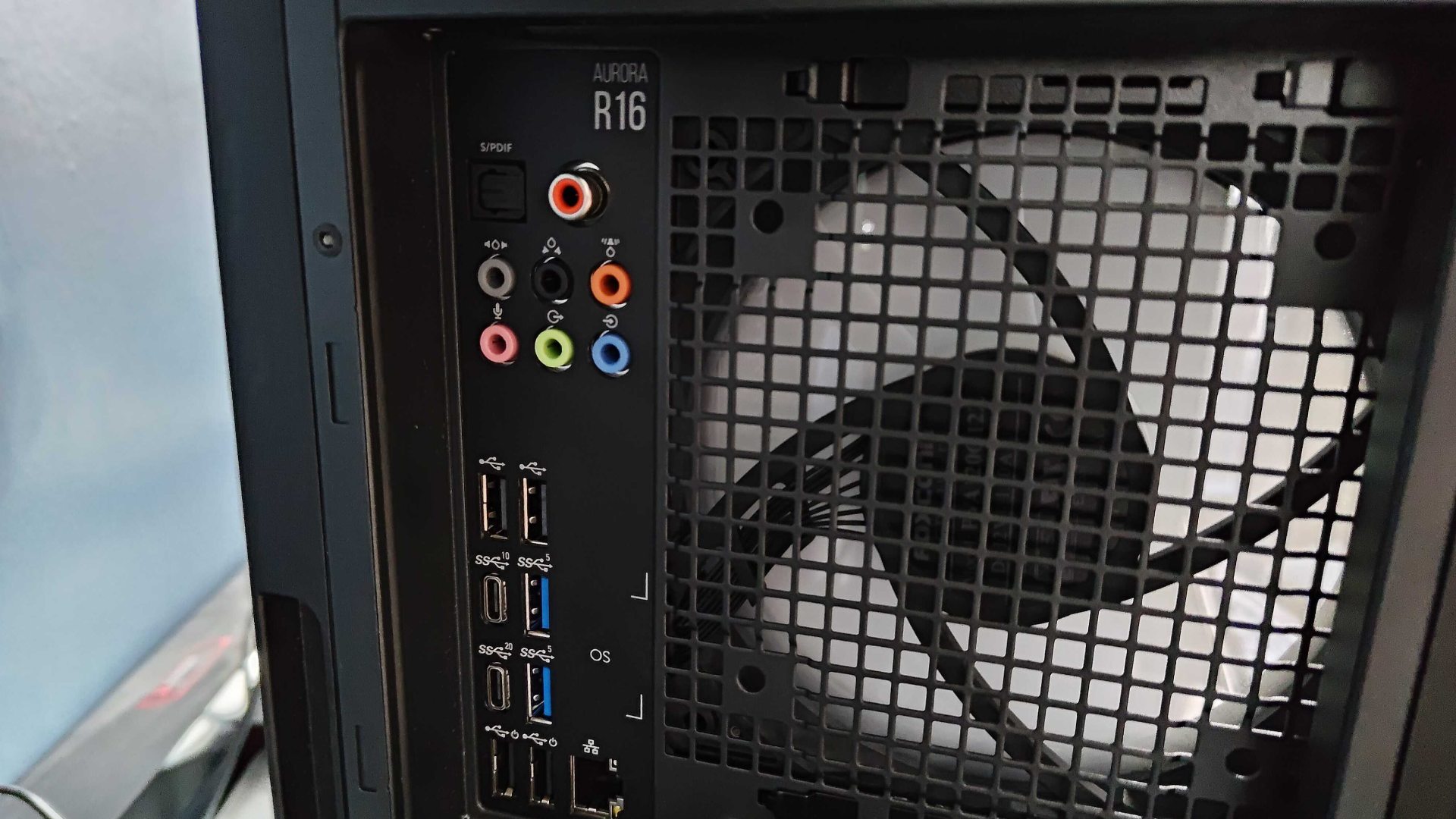
Specifications
Reasons to buy
Reasons to avoid
- Our favourite configuration:
It finally feels as though Alienware is turning a new leaf, and although the brand revealed a PC at CES 2025 that, for once, doesn't use proprietary parts, the journey toward convention began with the Aurora R16. We were thrilled to see this PC when it was first revealed, because it held onto the space theming this brand is known for while leaning more into a convenient, compact package that's far easier to grapple with. We weren't disappointed when we got our hands on it, because it's the best Alienware PC we've tested.
✅ You don't plan to upgrade anything anytime soon: Alienware PCs are infamous for their inability to accept new component upgrades that aren't made by Alienware. If you plan to do some surgery down the line, this isn't the make for you.
✅ You don't mind paying a bit more: There's no way around the fact that Alienware charges a lot for its PCs. Sometimes you can find a good deal, but a lot of the time you'll be paying a premium versus other brands.
✅ You want great cooling: One benefit of Alienware is that you're guaranteed to get great cooling, regardless of the components that come in your build.
❌ You're on a tight budget: Honestly, there sometimes are good deals, but a lot of the time you're paying more for parts that shouldn't cost as much as they do.
❌ You've heard that Alienware is the only prebuilt brand out there: It used to be the case that Alienware was the best gaming PC brand out there, and some people still might feel that way. I think the market has expanded though, and there are other options worth considering.
Design & Features: The last few iterations of the Aurora PC have had a tilted chassis design and a lot of quirks, which you'd expect from this brand. The R16 case is shaped like a regular-old gaming PC, although it's a smaller size than the majority of them. Nevertheless, it still has some out-of-this-world personality thanks to its clever ventilation and ambient lighting.
The Alienware Command Centre is still here to help you navigate all your games and adjust various settings. This app comes pre-installed and also helps you control RGB colors. You'll find all sorts of configurations available, with the ability to swap out parts on Dell's retail page so you can determine what area of the motherboard you want to spend the most on. Most of the time you'll find Intel's 14th generation of processors running the show alongside Nvidia 40 Series GPUs. DDR5 comes as standard though, and although it's a cheaper option, we'd try and steer clear of the builds that only pack a 500GB SSD. For how much you'll inevitably pay for one of this brand's PCs, you deserve more storage than that.
Performance: We wanted to see what kind of things this latest Alien spaceship was capable of, so we reviewed the top-end configuration that features an RTX 4090. We've gone hands-on with that GPU quite a lot by now, but paired with an Intel Core i9-13900K, it had a lot of room to gallop. Perhaps most impressively, the Aurora R16's Dyson-like fans managed to keep things cool and not too loud. The processor didn't peak past 90°C during our tests, which is great for a processor that we've seen get to boiling point in other rigs.
For some more detailed performance figures, check the graphs below. As you can imagine, there's not much an RTX 4090 and 13900 processor can't handle with ease.
The best budget gaming PC
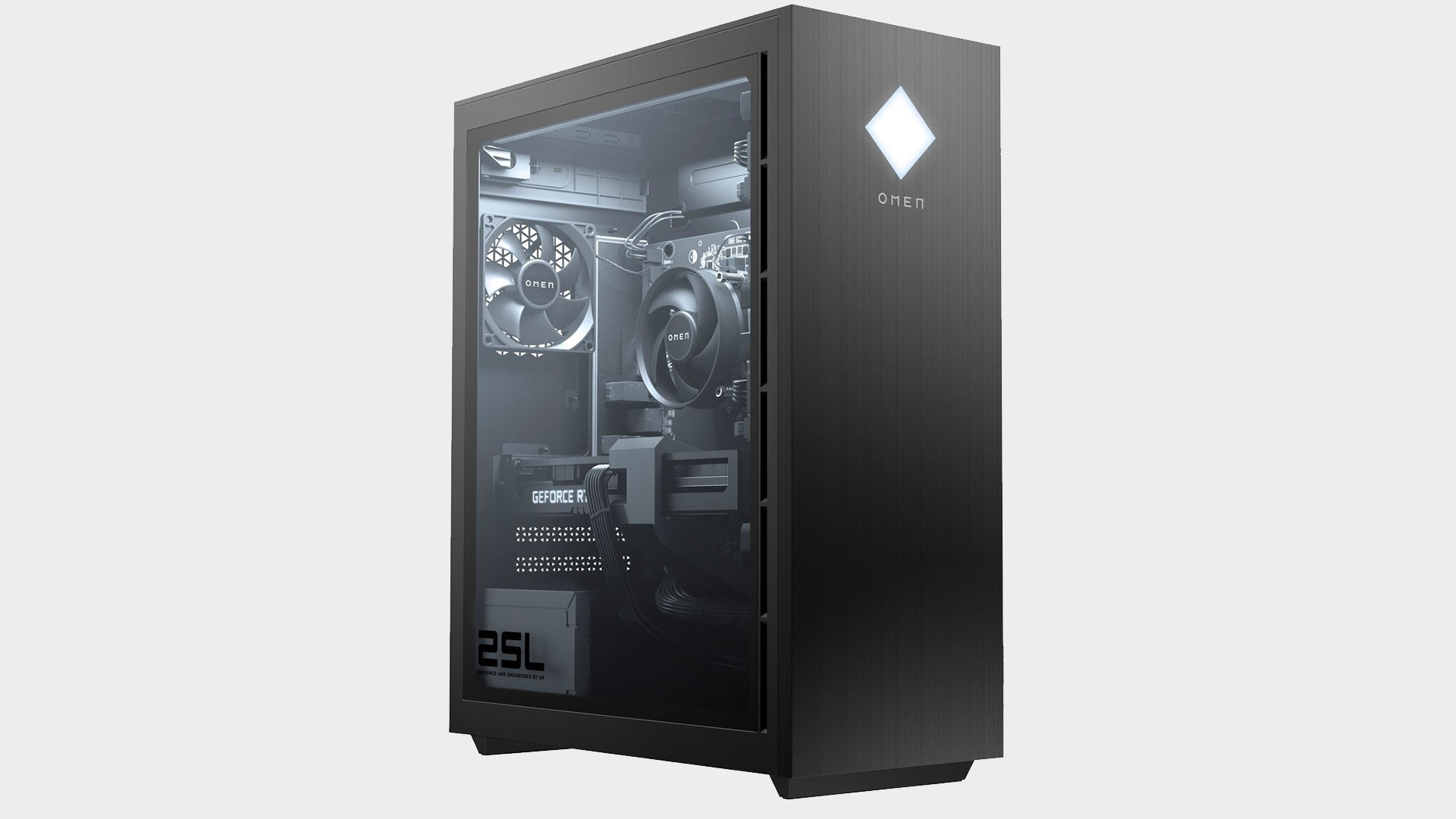
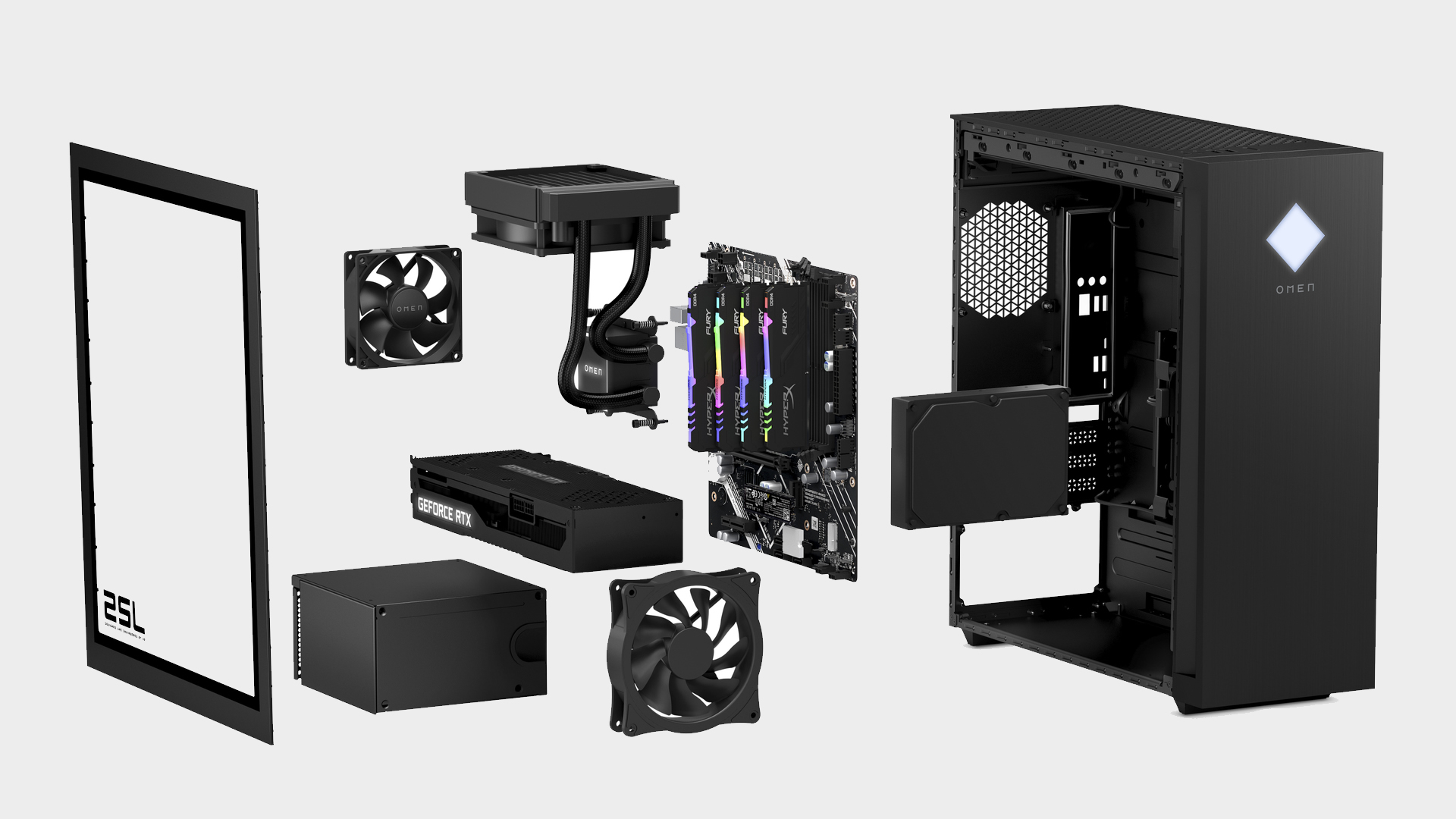
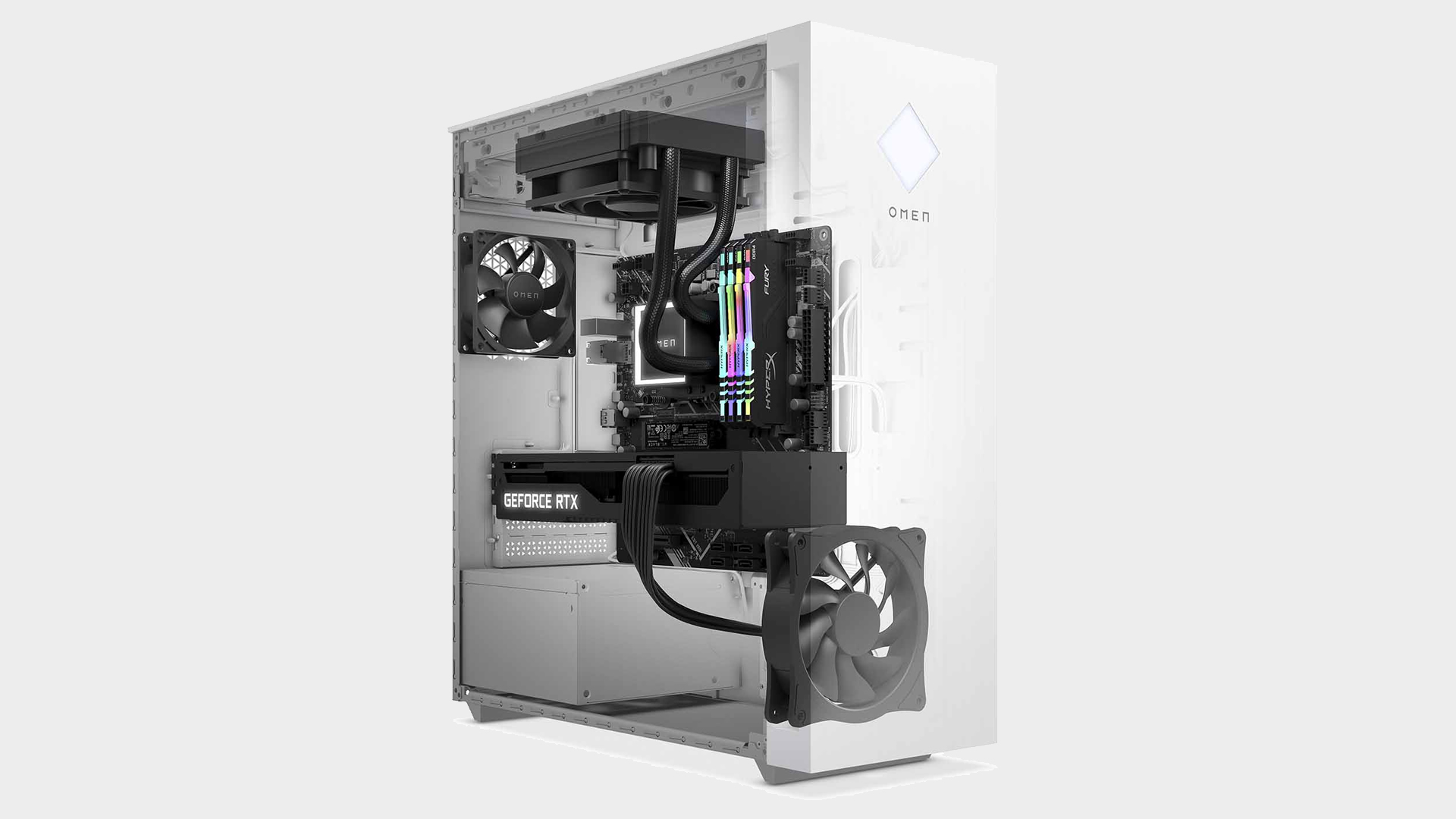
4. HP Omen 25L
Specifications
Reasons to buy
Reasons to avoid
- Our favourite configuration:
HP Omen 25L | £1,199.99 at Currys
This black HP Omen 25L sports a 13th Gen Intel Core i7 processor, which isn't often found in rigs under £1,300 at this time of year. There's also an RTX 4060 Ti GPU that's more than capable of kicking out 4K visuals at a TV or monitor. For the price here, you also get a decent 16GB of DDR5 and a 1TB SSD.
The HP Omen 25L can be found at quite a few different retailers, and it's been around in some shape or form for years now. The parts within have always been great, but they've kept evolving with the times so you'll often see it with up-to-date parts that are still worth investing in. The 25L is the smallest in HP's range too, so you're more likely to find budget configurations too.
✅ You want something reliable. Despite some complaints about temperature control, we never hear bad reports about HP's Omen desktops. That may come down to the premium parts used inside.
✅ You're looking for lower-end configurations that are still viable. For a "best budget" pick, the 25L can still rack up a big price. But these configurations are futureproofed, and if you buy too cheap right now, you'll end up needing to buy again soon.
✅ You don't want a massive monster of a machine. Too many gaming PCs take up more space than they need to, and the 25L shows some restraint.
❌ You'd like advanced cooling. The HP Omen 25L doesn't come with any liquid cooling, so you might have to accept some loud fan noise at times.
❌ You want lots of RGB. The chassis for this PC comes in Black or White with a transparent side panel, but it isn't as RGB-filled as your average gaming PC these days.
❌ You're aiming for the power. You won't get flagship processors and massive 4K GPUs in this build, so if you want more power, aim for the HP Omen 45L.
Design & Features: Since this is the smallest of the HP Omen PCs, you're unlikely to lose lots of real estate under or on top of your desk because of it. It's still a standard ATX size, but it's not the hulking great mass that the 45L case would be. Alternatively, there's a new 35L model that sits in the middle and sports a new design. We previously reviewed the now discontinued 30L which has a lot of the same design as this.
As standard, the 25L options will always come with an 800W PSU, and your usual Wi-Fi and Windows 11. You'll also get an HP/Intel H770 motherboard. I haven't seen a version of the HP Omen PCs with AMD processors, so you'll be good for 12th, 13th, and 14th generation chips from the Blue team. Combine that with the power supply, and you've got lots of potential for upgrading later on.
Connectivity really isn't bad for the money either. Your motherboard will give you allowance for 4x USB 2.0 devices, and 2x USB-C connections of varying speeds. You'll get a further 2x SuperSpeed USB-A ports from the chassis.
Performance: According to HP, you can find 25L machines with up to an RTX 4070 Ti, which isn't exactly a budget graphics card, but if you find good deals, it means there's a chance for you to get more power for your money than you originally budgeted for. Most of the time, you're going to be looking at high frame rate 1080p gameplay from these rigs, but there's loads of allowance for 1440p if you have a compatible display.
Back when we tested out the 30L version, we were really pleased with its gaming potential, and that was when it was using less powerful parts than are available now. Besides some temperature control issues and not the cleanest of innards, this is a PC well worth investing in.
The best high-end gaming PC
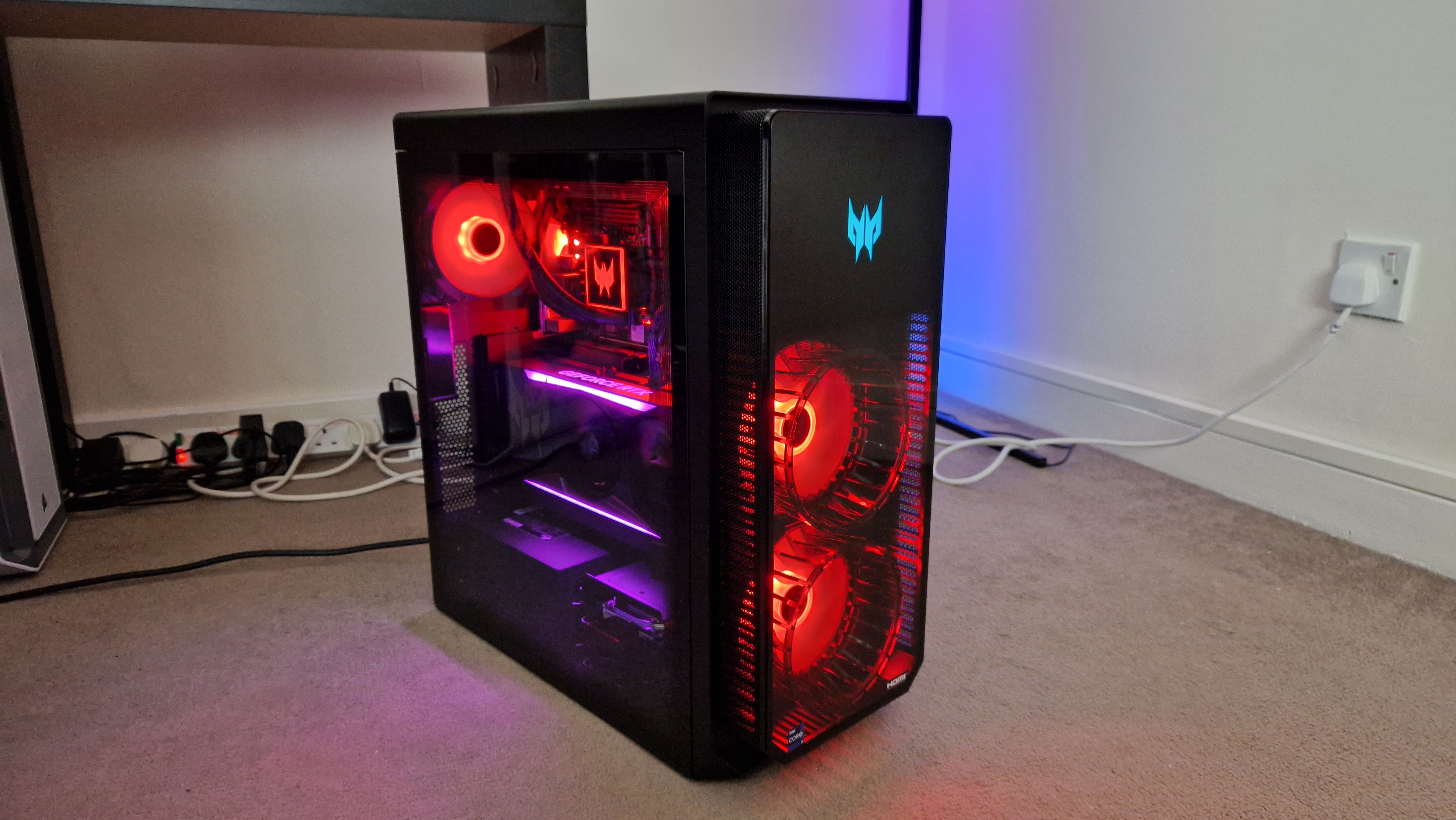
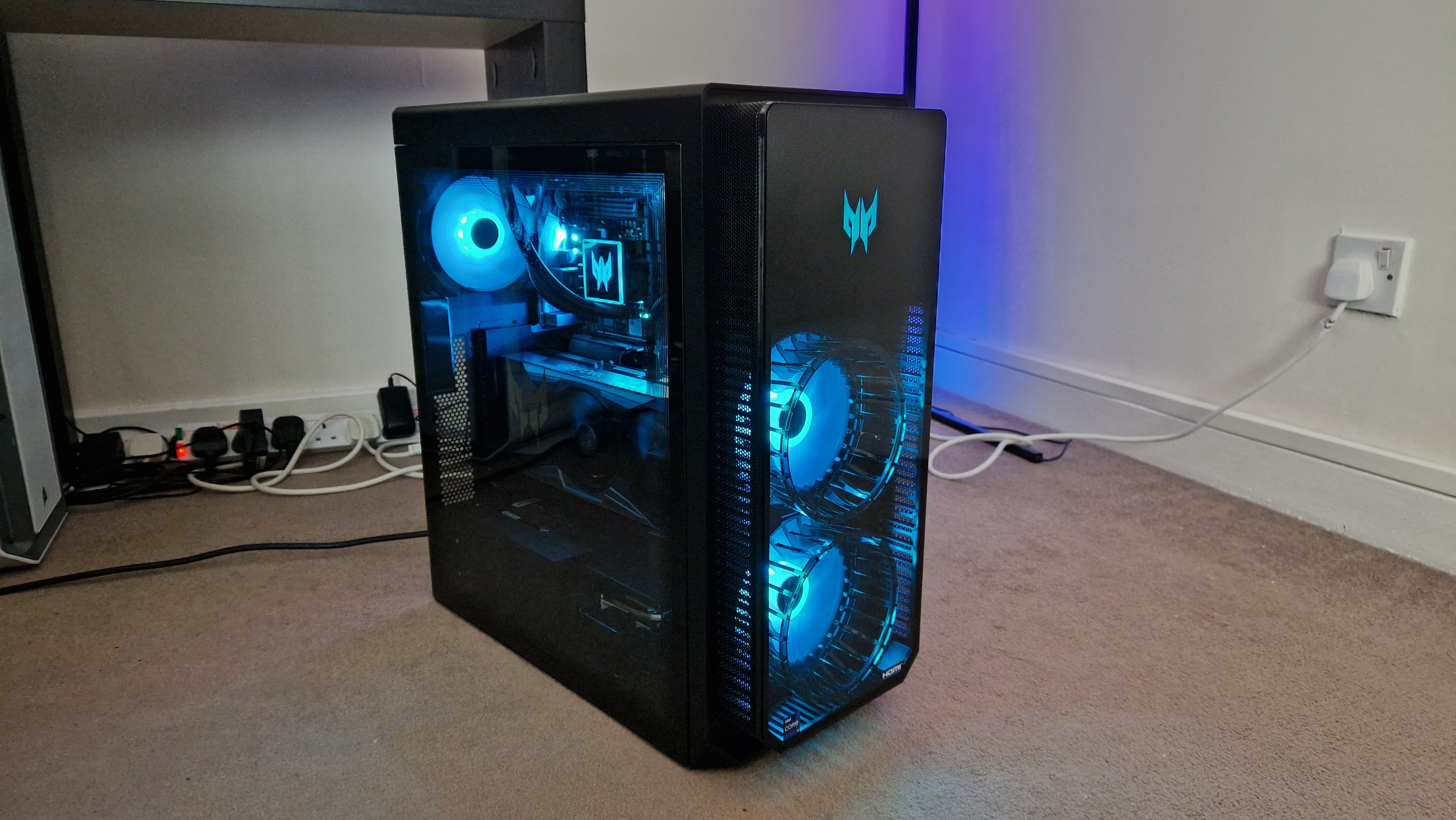
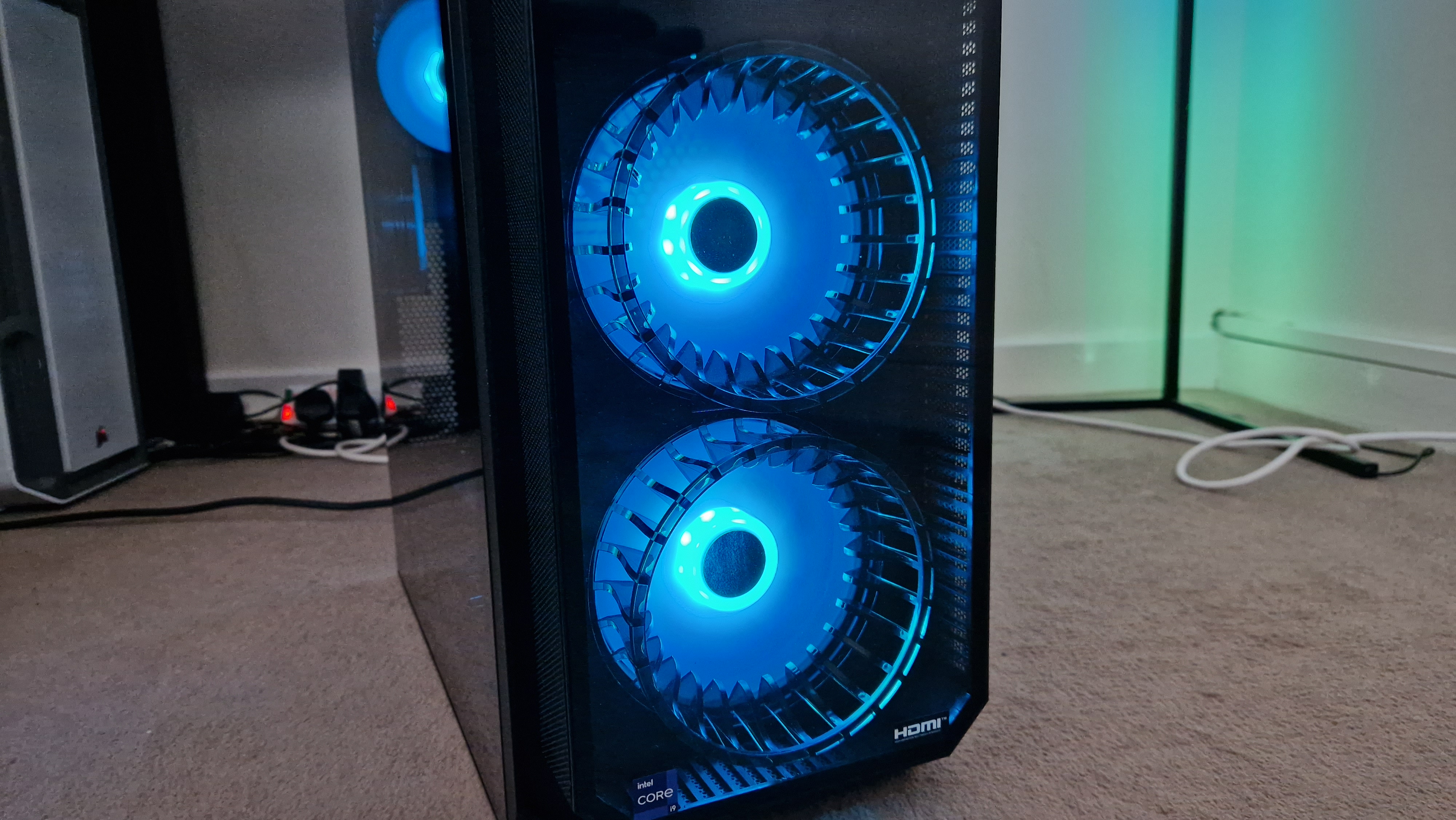
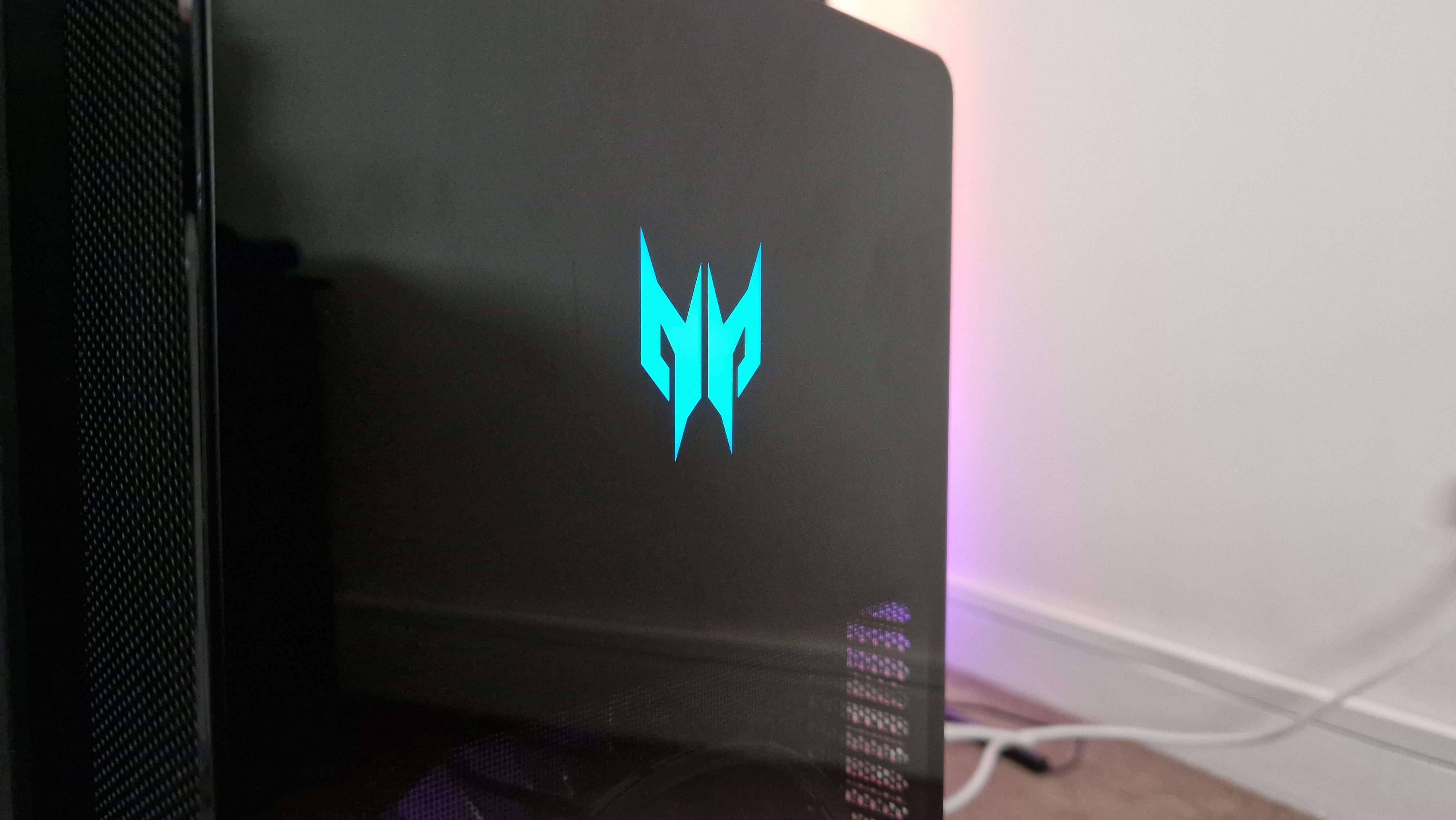
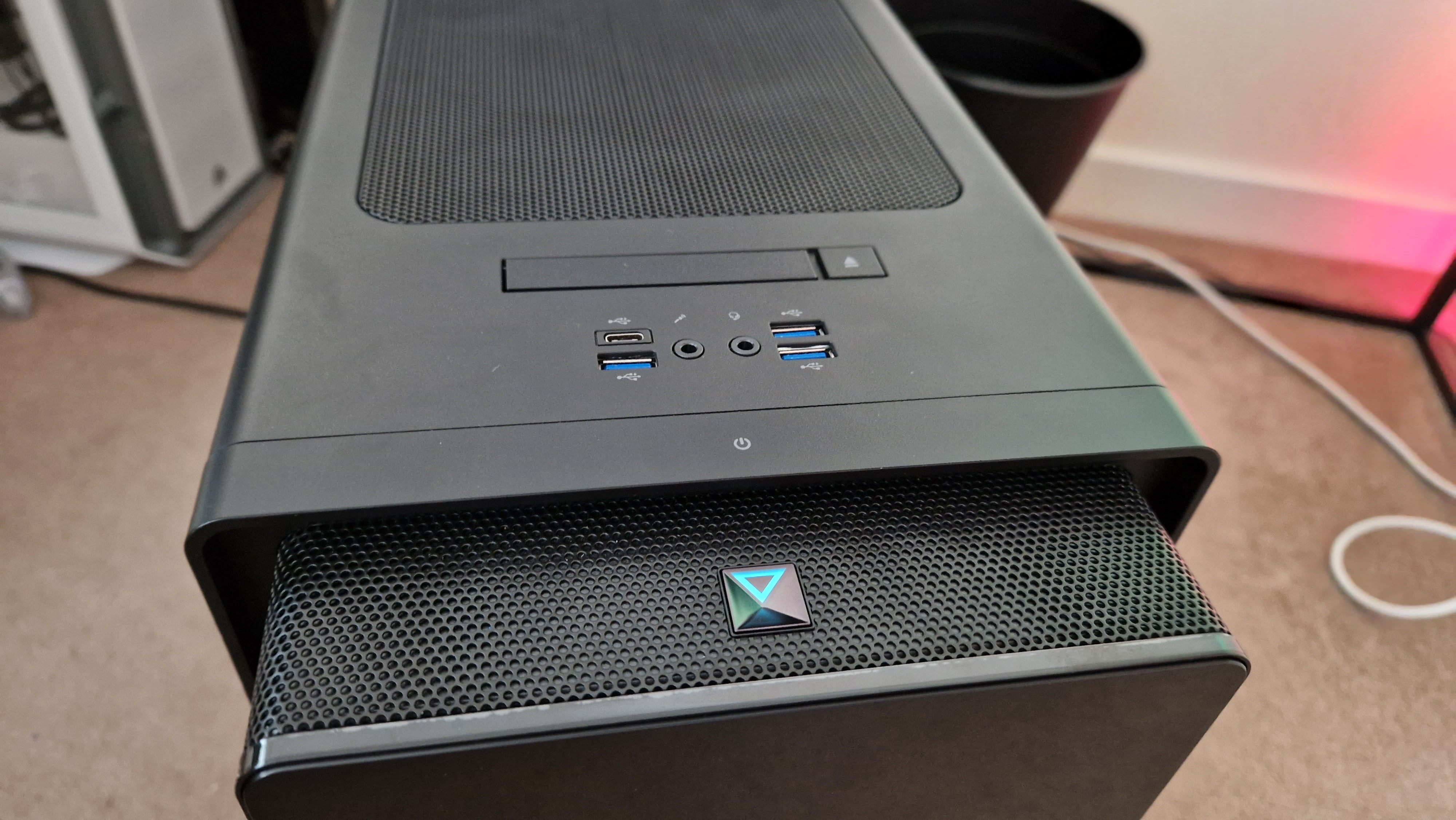
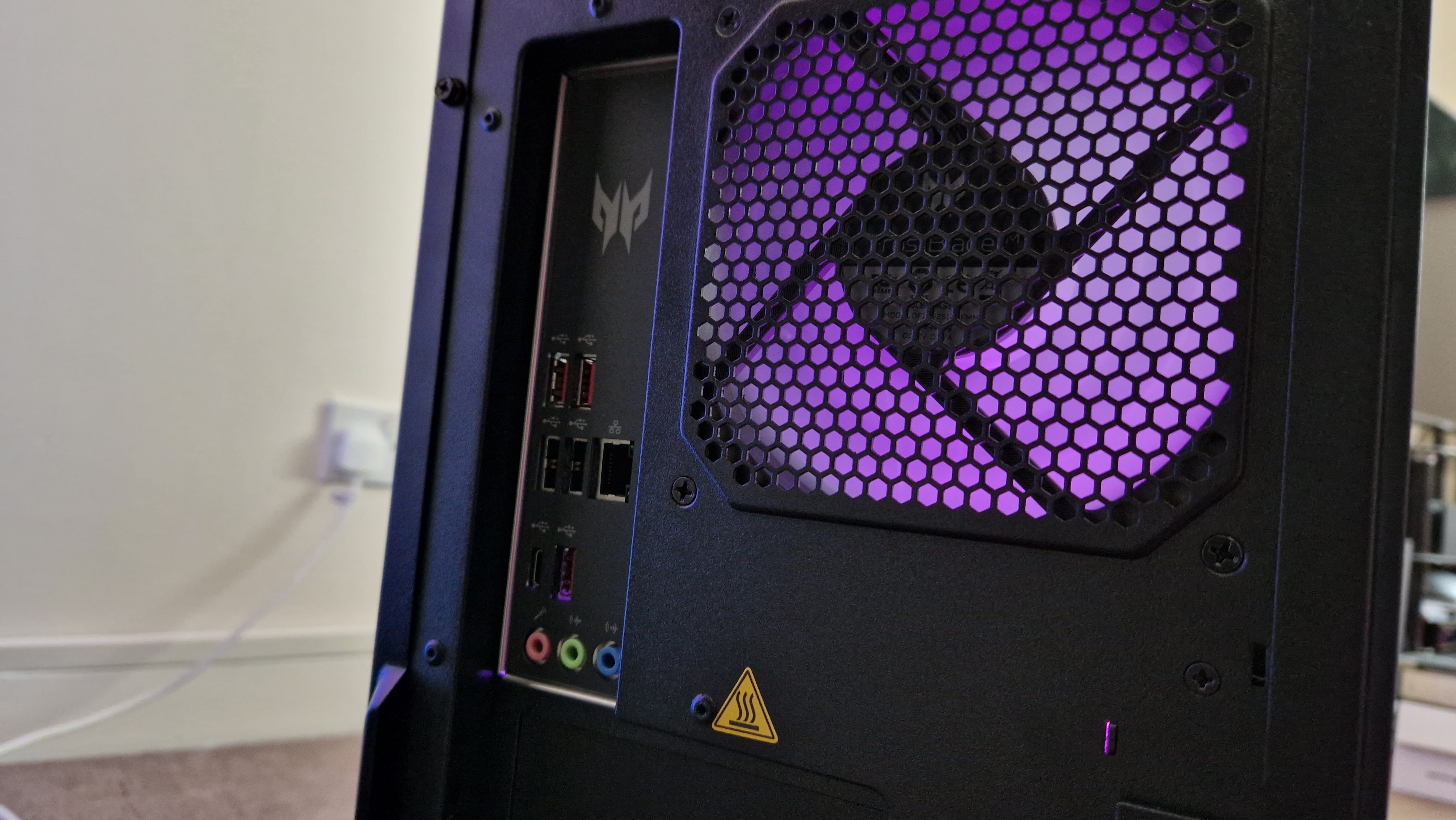
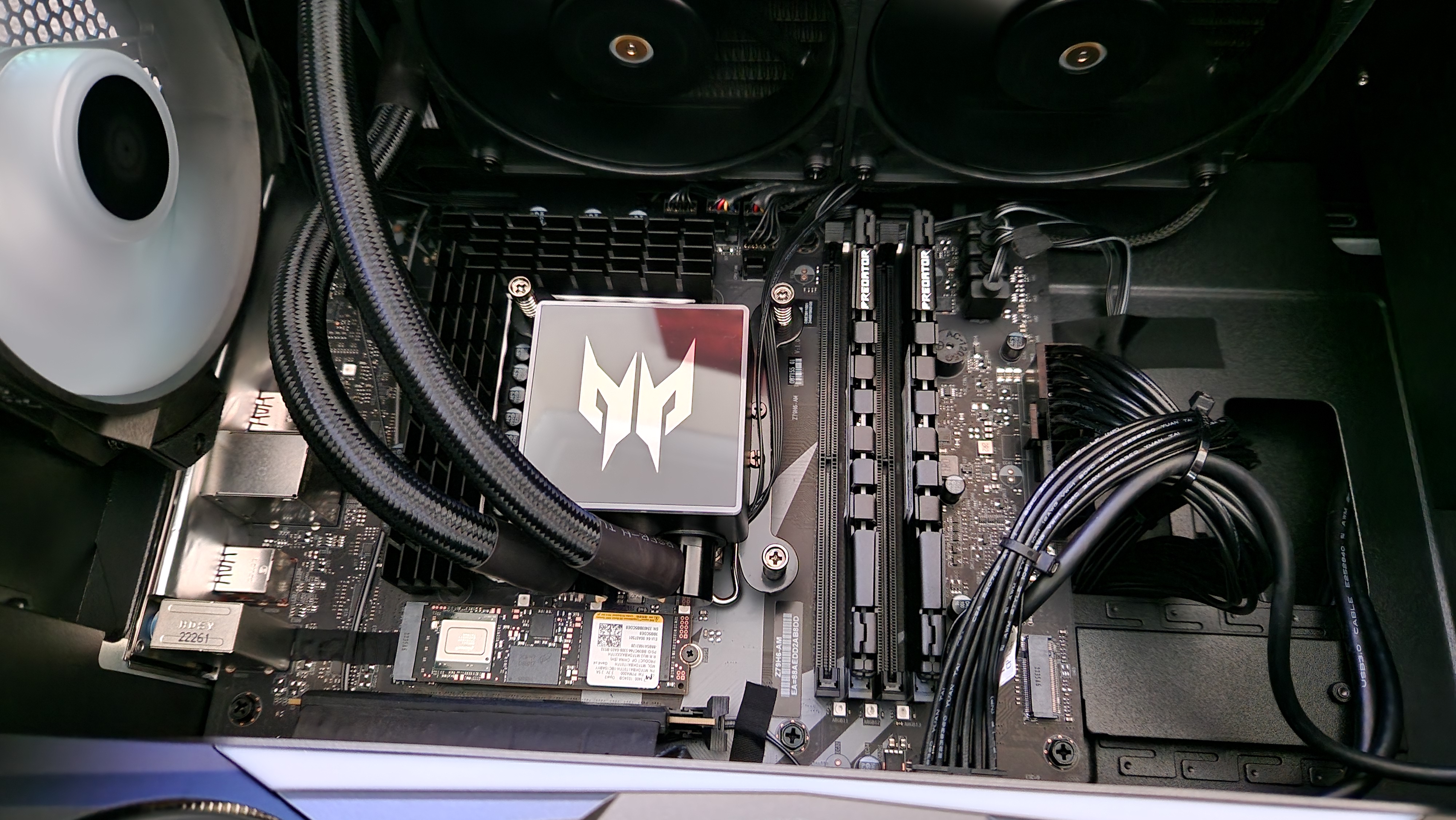
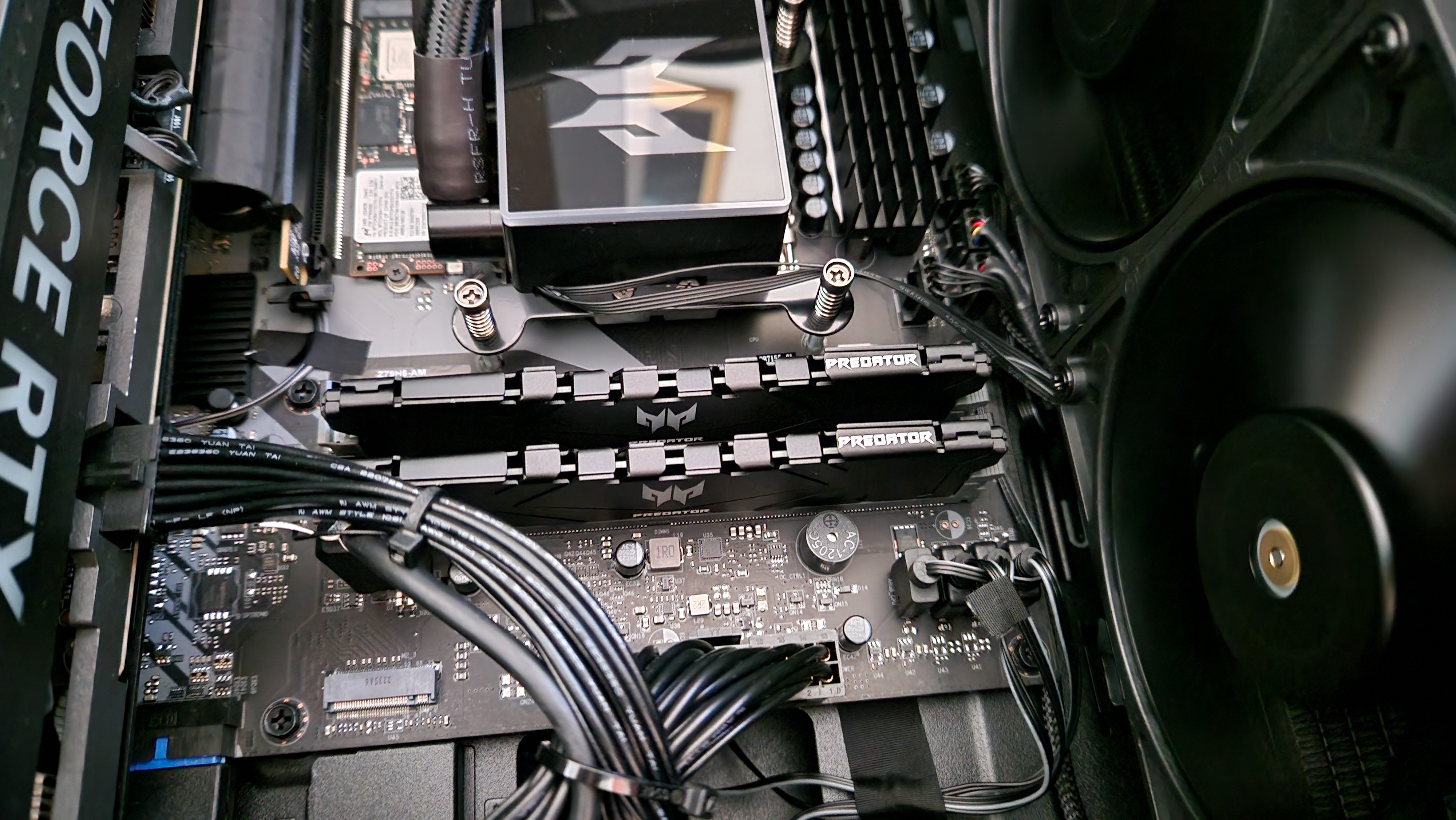
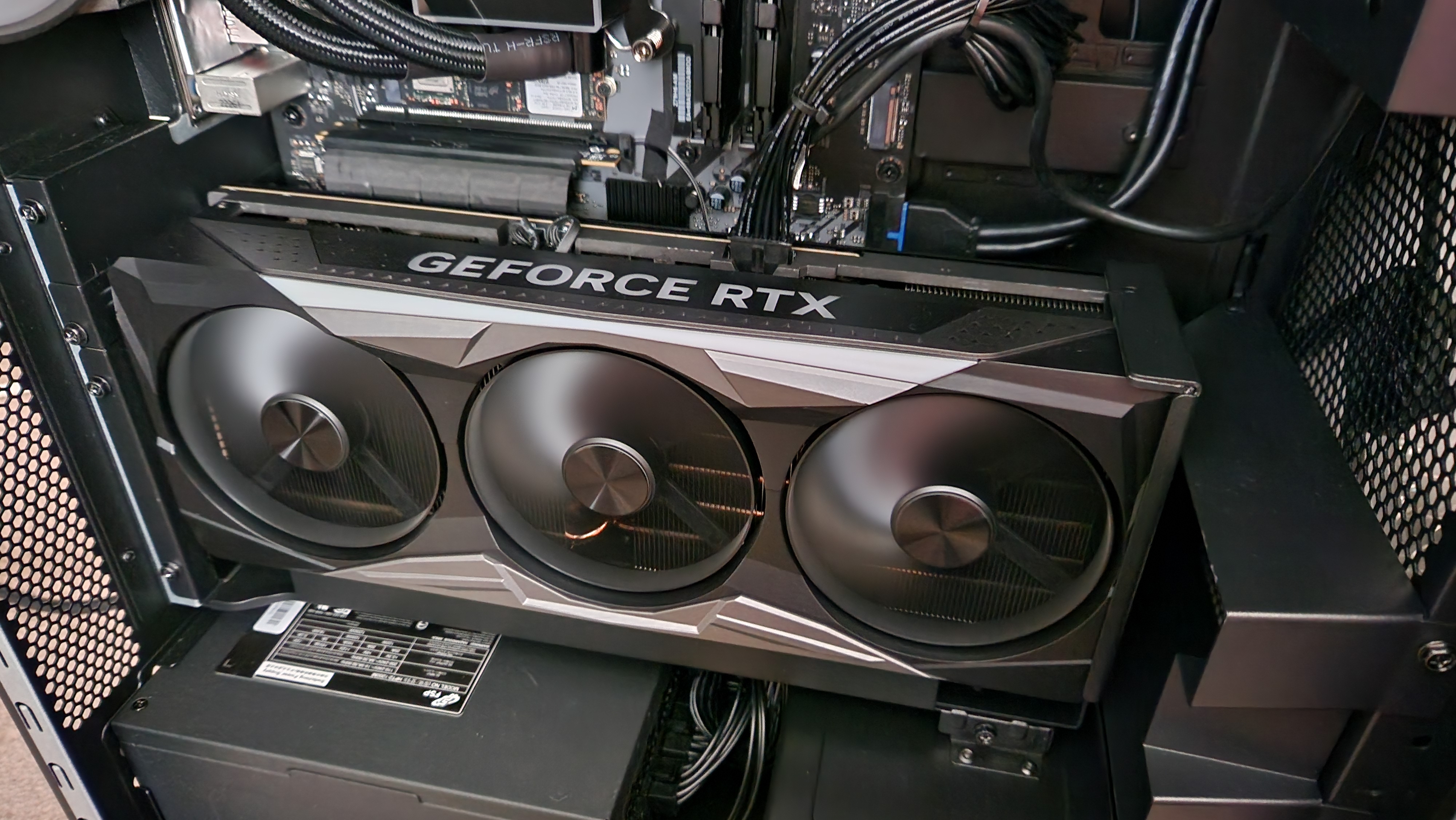
Specifications
Reasons to buy
Reasons to avoid
Our favorite configuration:
Acer Predator Orion 5000 | Intel Core i7-14700F | RTX 4070 Super
This may have the number 5000 at the end of it, but it's still the same PC packed into the same case. Compared to our review configuration, which sported an RTX 4090, this is a little scaled back, but it means a more affordable price, which isn't always the easiest to find for a well-known brand like Acer.
The Acer Predator Orion 7000 has been a mainstay of this list for a few years now, once holding the top spot for its excellent performance and lovely case design. A new version of this PC is coming in 2025 which alleviates a lot of the issues I currently have with it, which is exciting. Fortunately, those issues don't spoil the mood for what we have right now.
✅ You want power. The upper allowance of configurations here is wild, and the version we tested is a testament to that. If you want the beefiest parts, this is a reliable option.
✅ You are okay with a more up-to-date version being available. We haven't tested it yet, and it isn't out yet, but there is a redesign of this PC coming soon that may fix many of the problems we had with it.
✅ You don't mind paying a bit more. Acer has some great options on the shelves, but they aren't always the cheapest.
❌ You want something quiet. This is up there with the noisiest PCs we've ever tested, so keep that in mind.
❌ You want good temperature control. I'm not joking, even with all the fan noise, you'll still have to deal with a lot of high temperatures.
❌ You hate proprietary software. It's not super intrusive, but you will need to deal with the odd bit of software that's pre-installed on Acer's computers.
Design & Features: The Acer Predator Orion 7000 is a big boy. It's got plenty of transparent paneling so that you can enjoy the various RGB parts within, and at the front ,you'll find two fans blowing their hardest to keep things cool.
Acer is slowly getting to a point where it uses all of its own components, which is an interesting direction to go in seeing as Alienware is headed the other way. Until Acer gets some RAM out the door though, you'll find Adata providing memory for these builds, with Nvidia and Intel seeing to the headliners.
Predator Sense is the app that will come pre-installed, helping to control cooling, performance modes, and lighting. It's slowly been getting better over the last few years, but I get the impression the next update in 2025's Orion models will be the one to really look out for. Hopefully, that updates to older models too because from the small demos I've seen, it looks a lot better to navigate.
Easily, the worst thing about this build is its volume, so let's talk about it.
Performance: This PC has a transparent front, and I feel like it's dying for a more efficient design. The fans make an absolute racket trying to keep this machine cool, and you may have heard jokes about airplanes on runways, but that's actually what this sounds like. It is stupidly loud, and even the version with an AIO cooler I tested wasn't efficient enough to keep the temperatures of a 13th gen i9 CPU at bay.
That said, there's a lot of power to be had in this machine, and if you invest in a good headset, you should have more than enough to enjoy. I am a bit surprised that this was the first Acer PC to ship with DDR5 RAM out of the box, and yet the motherboard and BIOS had no allowance for fiddling with XMP settings. Luckily that's something that was remedied with the Orion X, so maybe a BIOS update would help.
The best handheld gaming PC
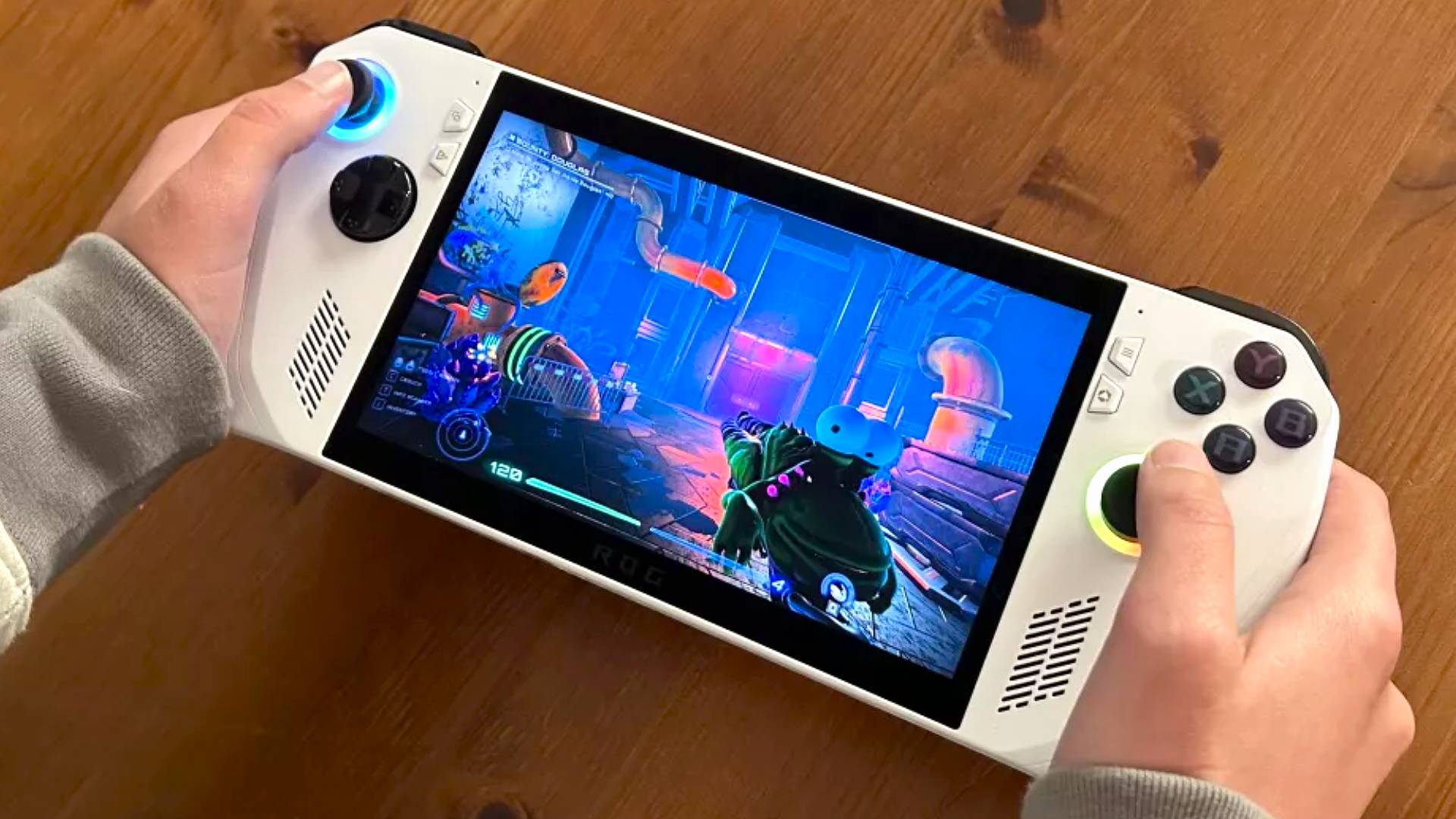
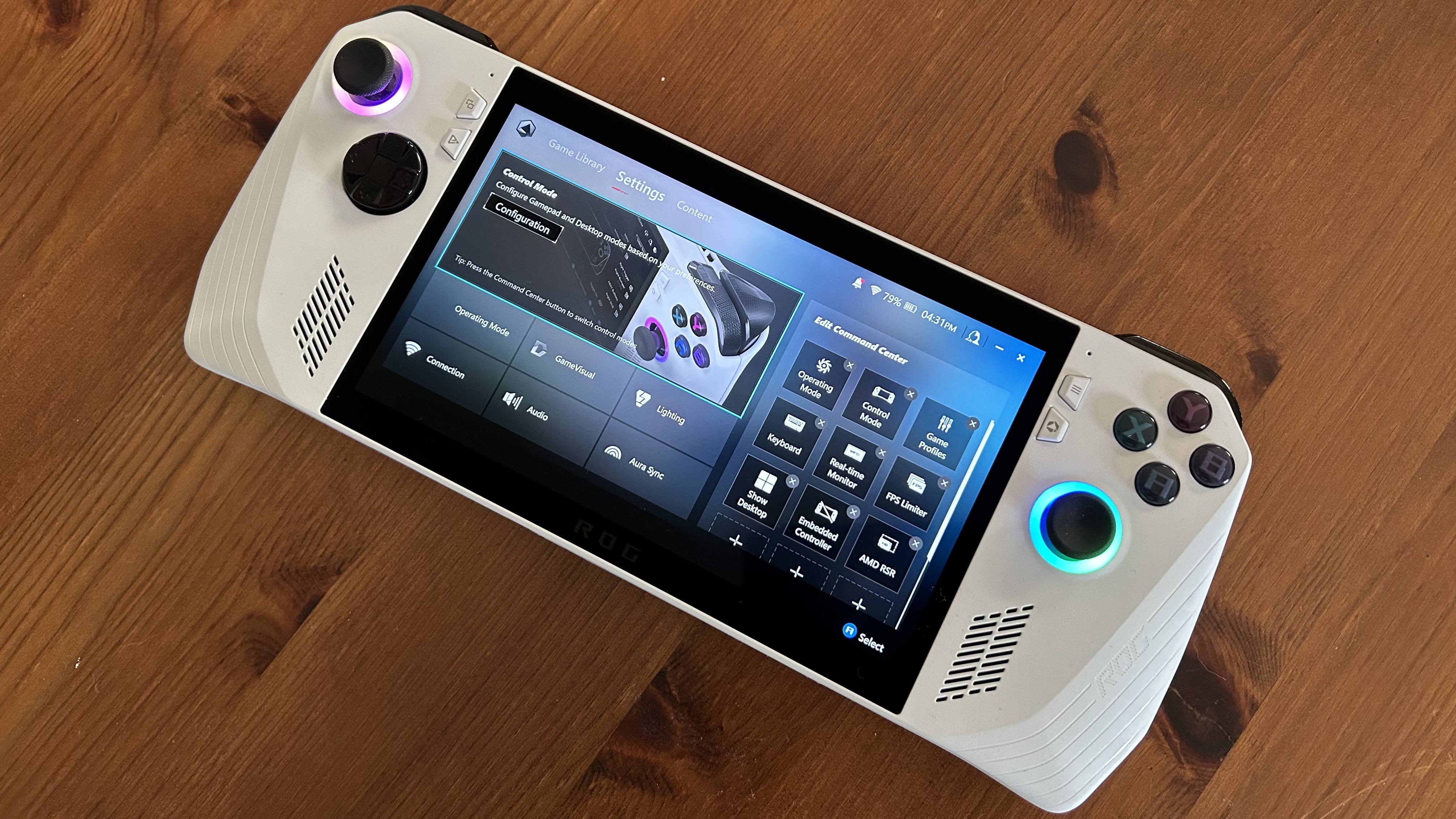
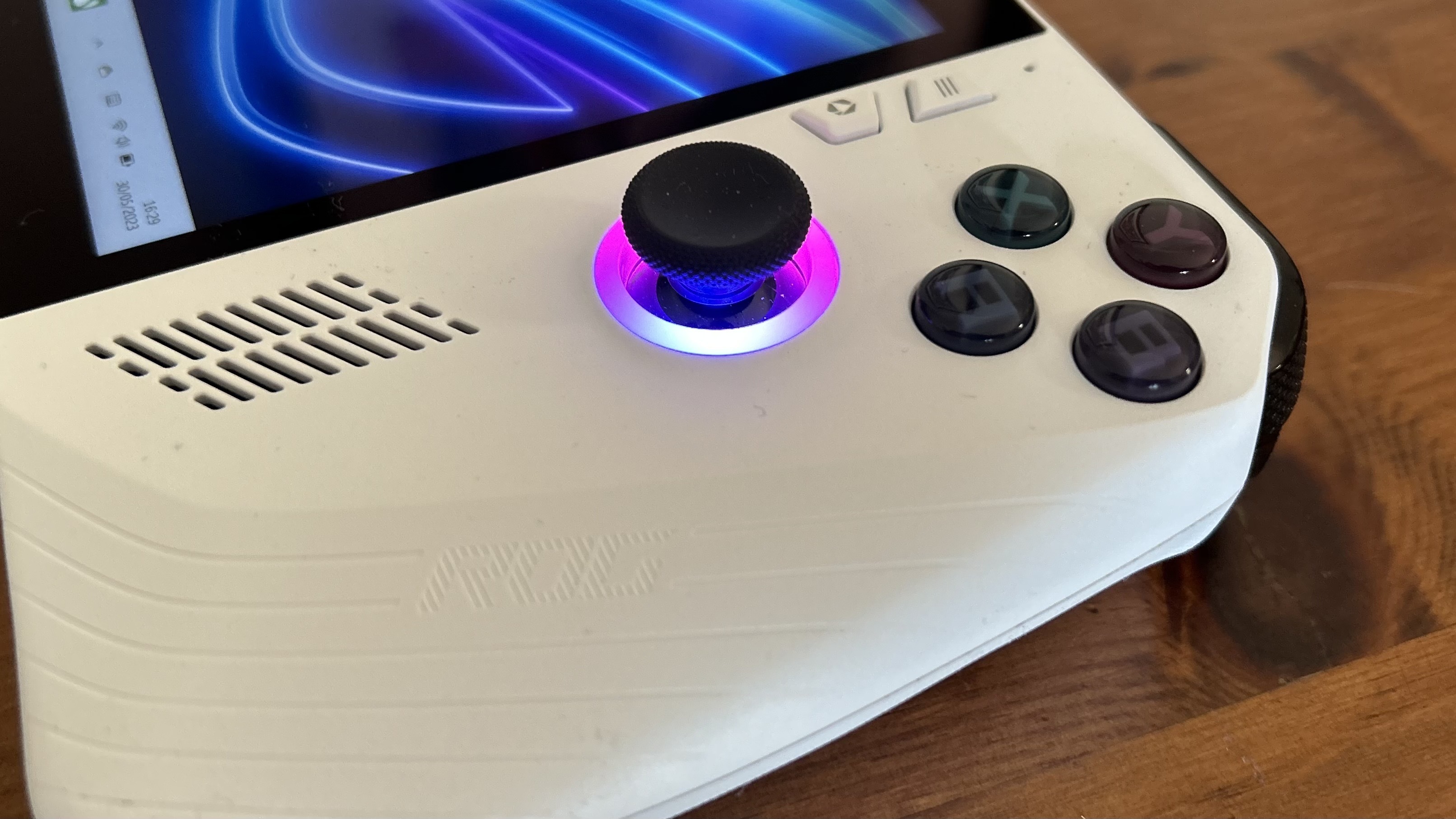
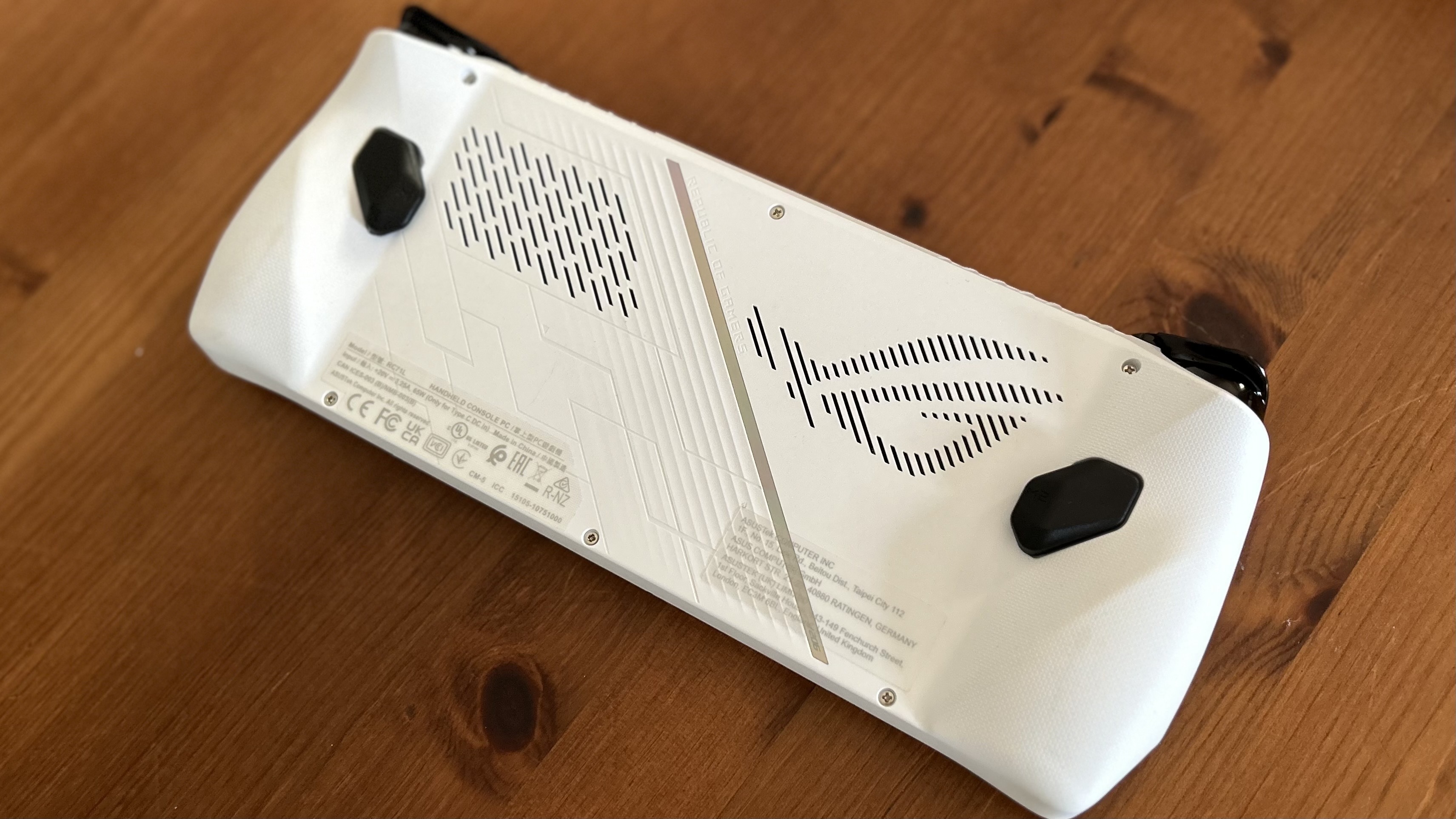
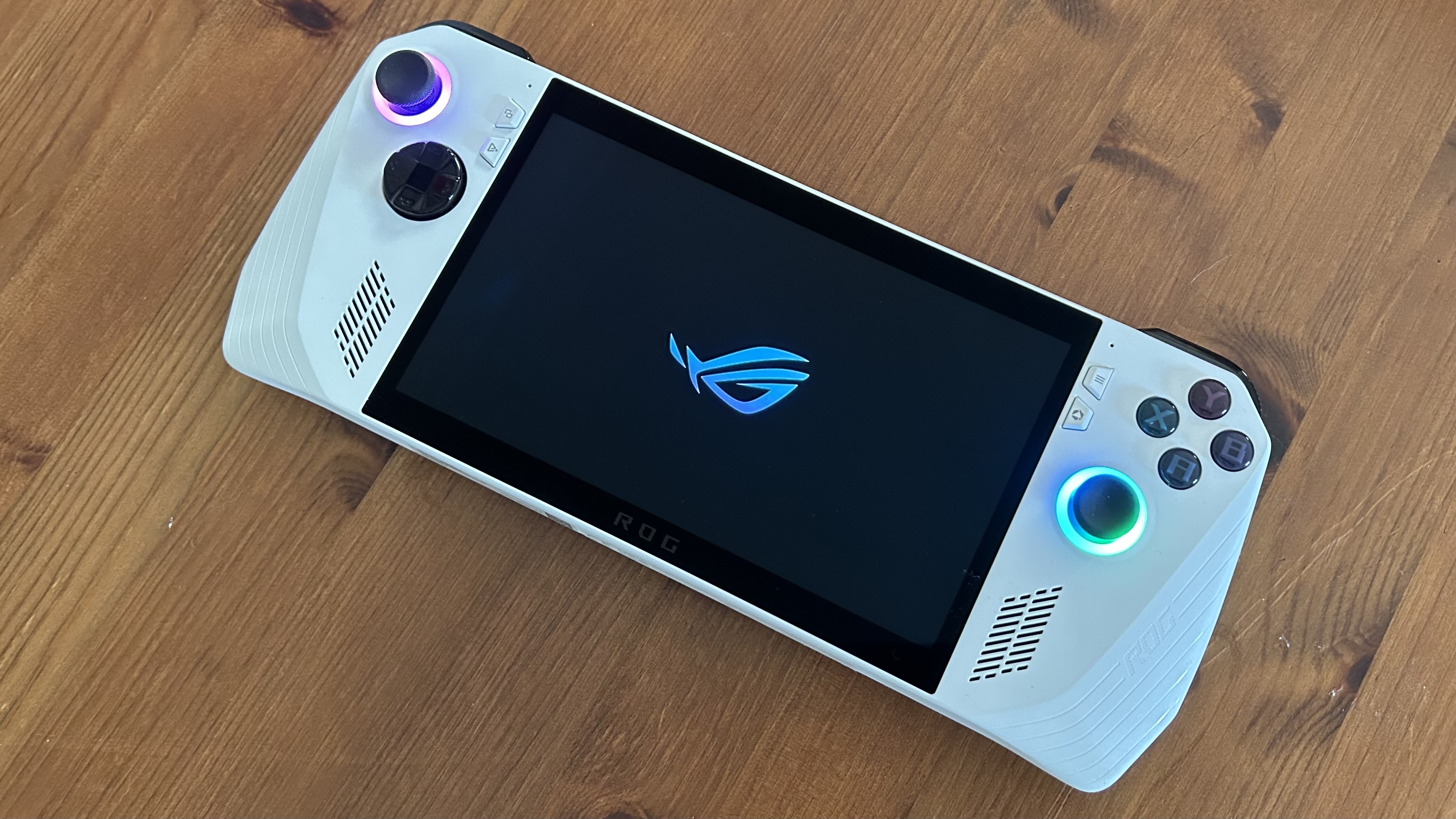
Specifications
Reasons to buy
Reasons to avoid
- Our favourite configuration:
Asus ROG Ally | AMD Ryzen™ Z1 Extreme Processor |£599 at John Lewis
The best price we can find for the Ally in the UK right now without going pre-owned is from John Lewis. We have seen the Z1 Extreme model go on offer for less money, but at this time of year we'll settle for MSRP.
By this point, you'll probably have heard about the Steam Deck. At this point, you'll probably have heard, or seen one of its rivals too, because they're coming from all angles at the moment. The best gaming handheld for us at the moment is the Asus ROG Ally. Although it's now got a more powerful sibling in the form of the Ally X, the Ally remains the best option for most PC players, since only the most power-hungry will be in need of the X's additional oomph.
✅ You want a Switch that's synced to your Steam library. All the novelties of the Nintendo Switch are here, but you can also clear the backlog you have in your Steam library while playing. Just imagine that.
✅ You miss handheld play. Taking games on the go is a real novelty, and for once, you won't have issues running the games you already play at home when you're commuting.
✅ You don't plan to run super demanding games on it. There are limits to how far the ROG Ally can go, even with the Z1 Extreme processor. If you plan to play the really demanding games, maybe look at the Ally X instead and try your luck there.
❌ You'll only play at home. It sort of goes without saying, but you could put the money toward a laptop or desktop if you're never going to actually use a handheld.
❌ You want SteamOS. If it's the true Steam Deck experience you want, you might as well go for the Steam Deck, or one of the other portable PCs which run it.
Design & Features: You'll find a 7-inch, 120Hz display aboard the ROG Ally, and it can be operated with touch, or with handheld controls. Naturally, if you find a dock for it you'll be able to hook up a mouse and keyboard, or any other peripherals that are compatible with Windows systems. If you know of the Nintendo Switch, you'll be familiar with the design here, although it's not locked to only Nintendo accessories, and there aren't detachable controllers on either side.
The ROG Ally runs on an AMD APU, which is a combined GPU and CPU. The architecture is very similar to those found in laptops, and it's more than enough to kick great gaming performance out to a small display you can take with you to work. There are two back buttons to help you control things as well and a handy version of Armory Crate to collate all of your gaming libraries into one menu.
Performance: If you don't believe that a portable PC is capable of keeping up with today's games, you might be shocked to learn that the ROG Ally can run games like Cyberpunk 2077 at 60fps, and that's using the same resolution as the Steam Deck. In full 1080p, you'll be able to scale settings to fidelity or performance as you would on a console, but it's no lie that this type of gadget has a lot of power up its sleeves.
The ROG Ally is our pick for best portable gaming PC right now because it packs a lot of power while granting all the same Windows 11 benefits your normal PC would. It's extremely versatile in that way, although that does mean it isn't as well optimized for portable play as SteamOS is.
Best gaming PCs - frequently asked questions
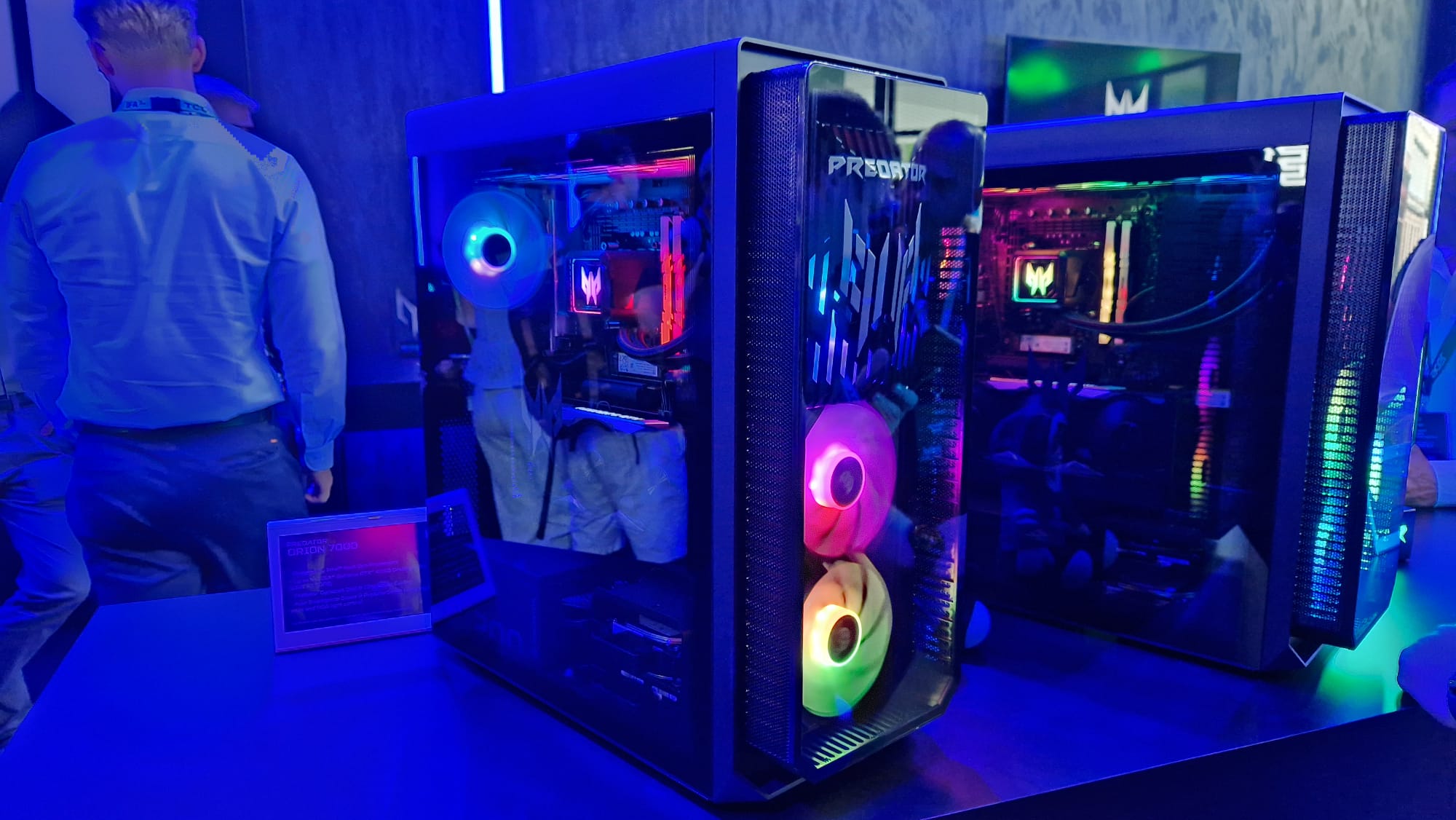
What is the price of a good gaming PC?
Generally, a good gaming PC can start as cheap as £800-£1,000 depending on what you want to do with it. If you're after one of the best gaming PCs on a budget for 1080p, then it's entirely possible to get a rig in this price range. Things become more complicated when you add 1440p and 4K gaming into the mix, generally hanging around the £1,500 mark depending on the manufacturer.
What is the best PC for gaming?
There are many great gaming PC brands out there in the prebuilt space including Asus, HP, Corsair, and Alienware. In terms of the best of them, that is going to depend on the end-user, as many different PC gamers have different requirements. We've found that Acer and HP make the best mid-range models, with Alienware and Corsair cornering the high-end market.
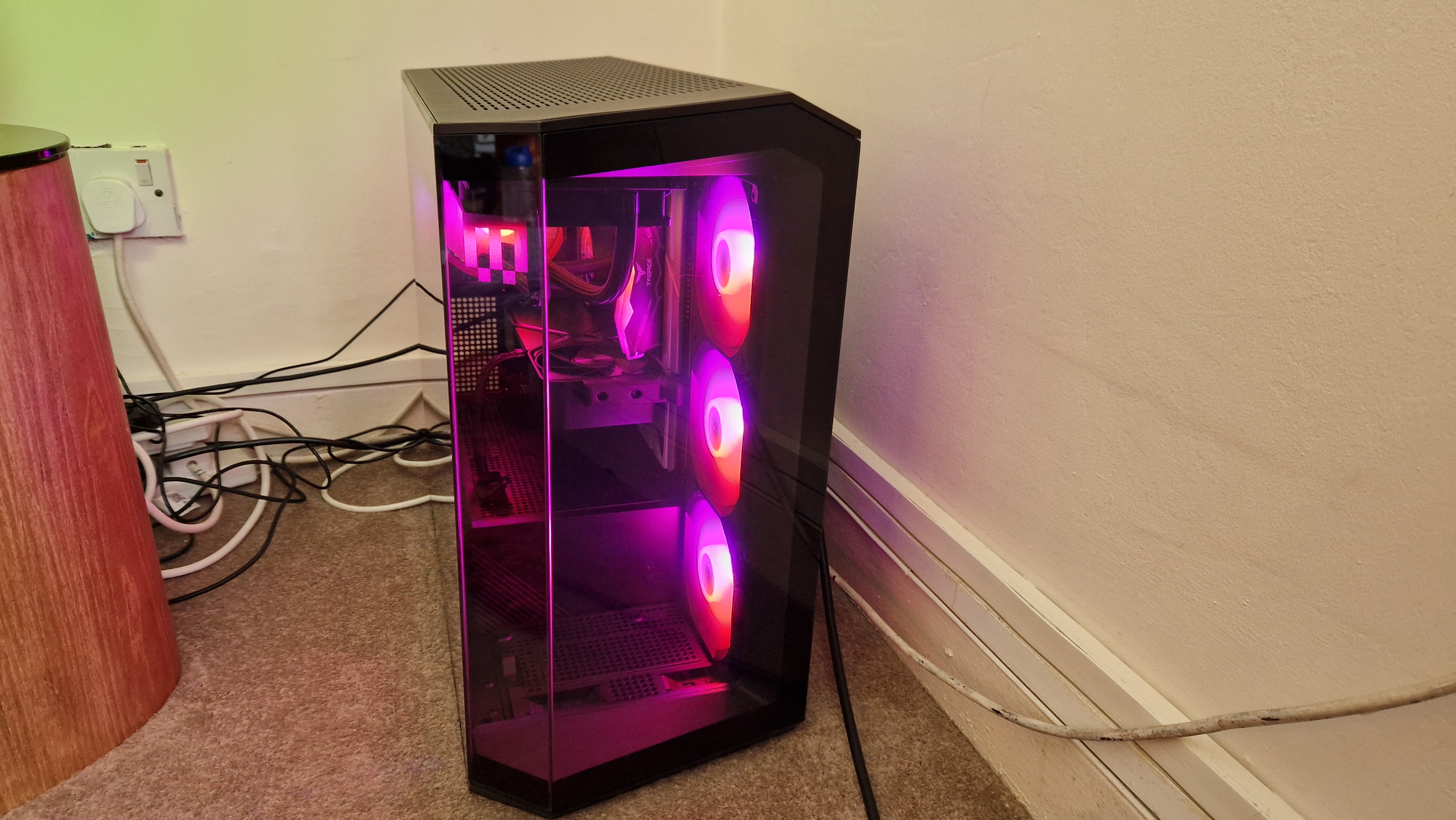
Is it cheaper to build your own computer?
A couple of years ago it genuinely was cheaper to build your own system with your chosen components instead of opting for a premium prebuild. However, pre-built machines may be the cheaper option in the coming weeks, now that a new 40 series of GPUs is being released. As new machines with those 40 series graphics cards are assembled by manufacturers, it's much more likely that our current picks for best gaming PC that house 30 series cards will drop down in price.
Best gaming PCs: Glossary
Why you can trust GamesRadar+
CPU / Processor
This is your computer's brain. CPU stands for Central Processing Unit and it's the component that will manage all of the tasks you ask your computer to run, including games, apps, browsing, and a lot of content creation too. Even if the GPU is more powerful when it comes to gaming, the CPU is the boss of the PC, so it's worth investing in.
There are two manufacturers you need to know about, and they're AMD and Intel. Intel has been the top dog for years, but AMD is really asserting itself in the conversation these days due to the amount of gaming power its CPUs have for the amount of money they cost.
Motherboard
If a CPU is a brain, then the motherboard can be compared to your computer's skeleton. It's the part that brings together all of your components, and its anatomy can determine what you'll be able to use with it. Different sizes of motherboards exist, and lots of different brands manufacture them. Each maker will integrate a basic form of software onto their boards, and this is called a BIOS.
GPU / Graphics Card
The GPU, or graphics processing unit, is often thought of as the main character when it comes to a gaming PC. It's the main spec that will determine the general price of your rig because depending on which one you get, you'll have more or less power when playing in certain resolutions. A GPU is essentially a computer within a computer that has its own memory and everything. Its processor is dedicated to running your gaming tasks and boosting visuals out to a display, but it still needs other parts to really function.
In terms of brands, you need to know about Nvidia, AMD, and Intel. Nvidia is the dominant force in consumer GPUs today, known for spearheading the use of AI upscaling. DLSS, FSR, and XeSS are all forms of the same thing. They generate extra frames by upscaling images to a desired resolution, which ups your gaming performance.
RAM / Memory
RAM is short for Random Access Memory, and it's like your computer's short-term memory. It pulls data from your storage that you're currently using, or your system predicts you might use so that it can feed it to your processor quicker.
The current generation of RAM is DDR5. It's capable of much faster speeds than DDR4, you just need to keep in mind that it requires a new generation of motherboard than DDR4, which creates a lot of issues for people wanting to upgrade.
SSD / Storage
SSD stands for solid-state drive, and it actually uses the same architecture as RAM does to give you speedy access to your files and data. When it comes to gaming, this all comes down to loading times as sequential read and write speeds will determine how quickly data can be processed, or accessed by RAM.
NVMe M.2 SSDs are the ones you'll find in prebuilt gaming PCs. Some older, more inefficient options include SATA and HDD, but these are really outperformed by SSDs today, and they should only really be used as additional forms of storage.
Case / Chassis
The case is the thing that houses all of your PC's components, and ideally, makes them look pretty using RGB and transparent paneling.
There are a few different sizes of chassis you can find these days, and the most frequently used is ATX. This is a traditional case that uses one or two transparent sides and houses a regular-sized motherboard. You also get ITX, smaller cases that tend to be more quirky in order to fit large components into a smaller footprint. If you want the biggest size possible you'll probably look at EATX.
Each case will have differing airflow too, which is something to consider if you're upgrading or trying to make a PC more efficient.
AIO cooler
Some PCs only use the air from fans to cool their components. Air will come in one way, travel across the components, and exhaust fans will remove hot air. This can be efficient if set up correctly, but it can be loud, and more demanding components require better forms of cooling. An AIO cooler is short for an all-in-one cooler. It combines the power of air-cooling, liquid cooling, and a radiator to control your computer's temperatures, but it's also great for keeping volume levels to a minimum.
How we test gaming PCs
For a full rundown of how we test gaming PCs, you can click the link, or check out our full hardware policy. But in case you're curious, I'll give you a brief rundown here. Before we come to a verdict and write up a review, gaming PCs that are sent to us go through some rigorous testing. We'll make PCs sweat to see what they're like when they're working harder than most people will actually require them to because it gives us a benchmark of what each computer is like when it works all out. But that's only one part of the testing process, and the majority of our assessment is done by living with the technology as if it were our own.
That means using it like we would our own PCs. Playing games, working on, creating content on, and using whatever review product we have in for whatever we're up to. This can result in some demanding use in its own right. Using VPNs to navigate all the biggest US stores to find the best deals, or creating content and trying to squeeze every drop of performance out of the new games we're playing.
Then, the formal testing begins. Software benchmarks using industry-standard programs are often the best way to kick things off because we want to test each of the components in turn to paint a picture of what could be holding it back, or what's working overtime. To test the CPU, we'll use Cinebench, to test the RAM, we'll check out some numbers and XMP profiles in the BIOS, as well as CPU-Z. SSD testing is done with CrystalDiskMark, and we use 3DMark to run a PC through its gaming paces.
Then, it's onto our suite of demanding benchmarking games. These are Hitman World of Assassination, Total War: Warhammer 3, Returnal, Shadow of the Tomb Raider, and Cyberpunk 2077. We use these titles, not only because they give systems a particularly hard time to run, but because they come with their own benchmarking tests integrated into settings menus. We use these because they provide a standardized, fair examination of how each rig compares to another. We'll collect results from running these at different resolutions, with maximum settings, and toggle things like ray tracing and DLSS.
If you are looking to build, you might want to know more about the best CPUs for gaming, the best graphics cards, and the best RAM for gaming.
Sign up to the GamesRadar+ Newsletter
Weekly digests, tales from the communities you love, and more
One of my earliest memories is playing SuperMario64 and wondering why the controller I held had three grips, but I only had two hands. Ever since I've been in love with video games and their technology. After graduating from Edinburgh Napier University with a degree in Journalism, I contributed to the Scottish Games Network and completed an Editorial Internship at Expert Reviews. Over the last decade, I’ve been managing my own YouTube channel about my love of games too. These days, I'm one of the resident hardware nerds at GamesRadar+, and I take the lead on our coverage of gaming PCs, VR, controllers, gaming chairs, and content creation gear. Now, I better stop myself here before I get talking about my favourite games like HUNT: Showdown, Dishonored, and Towerfall Ascension. Location: UK Remote
